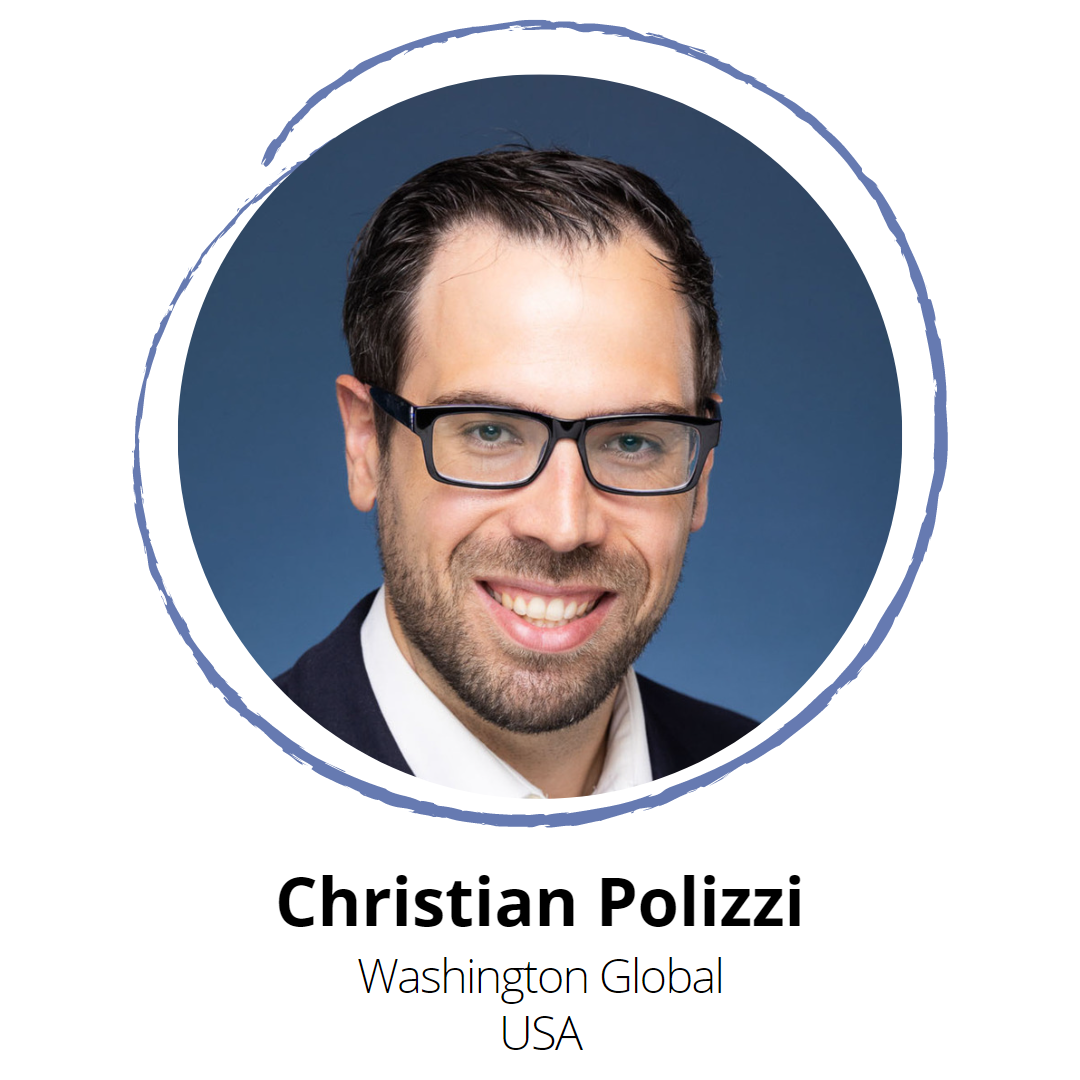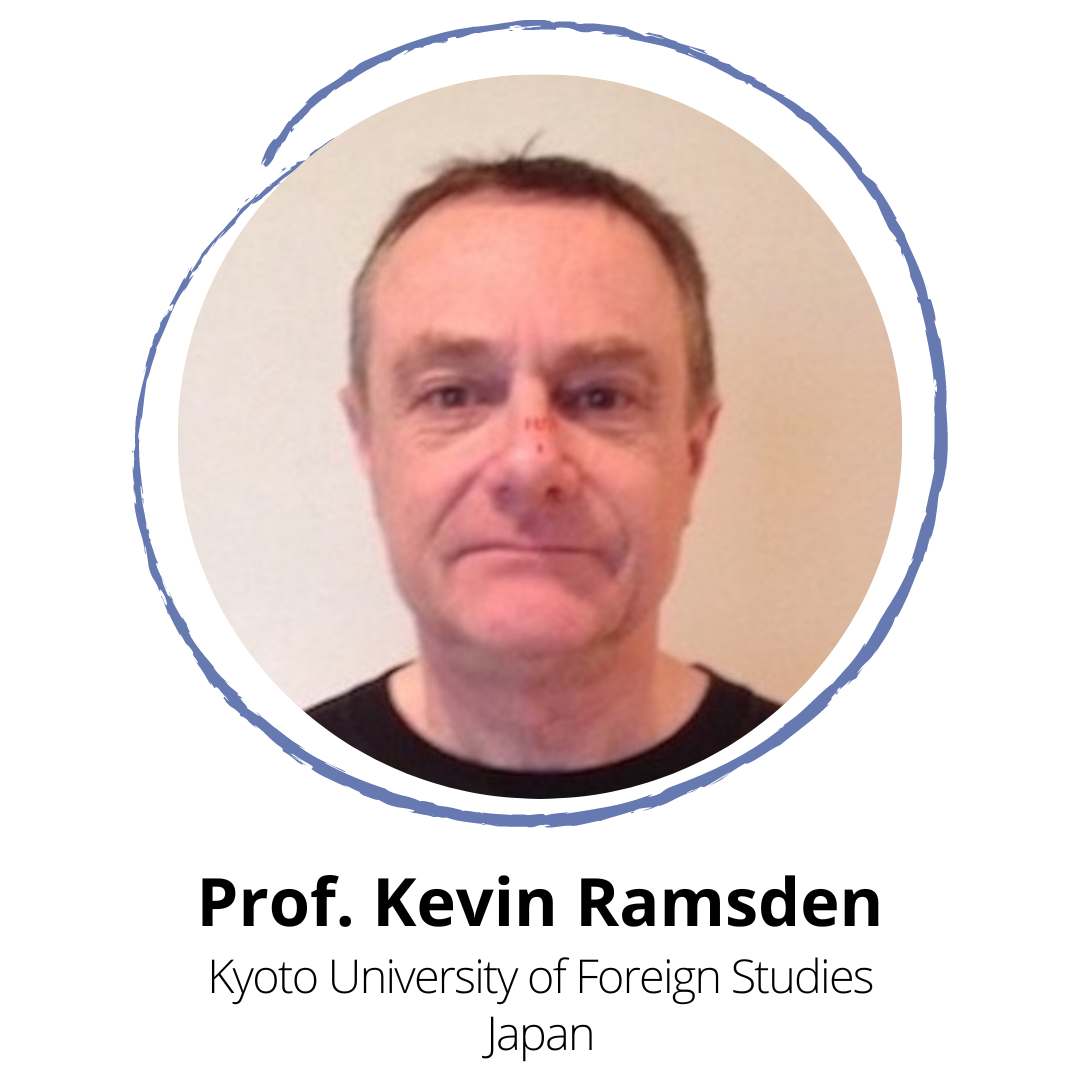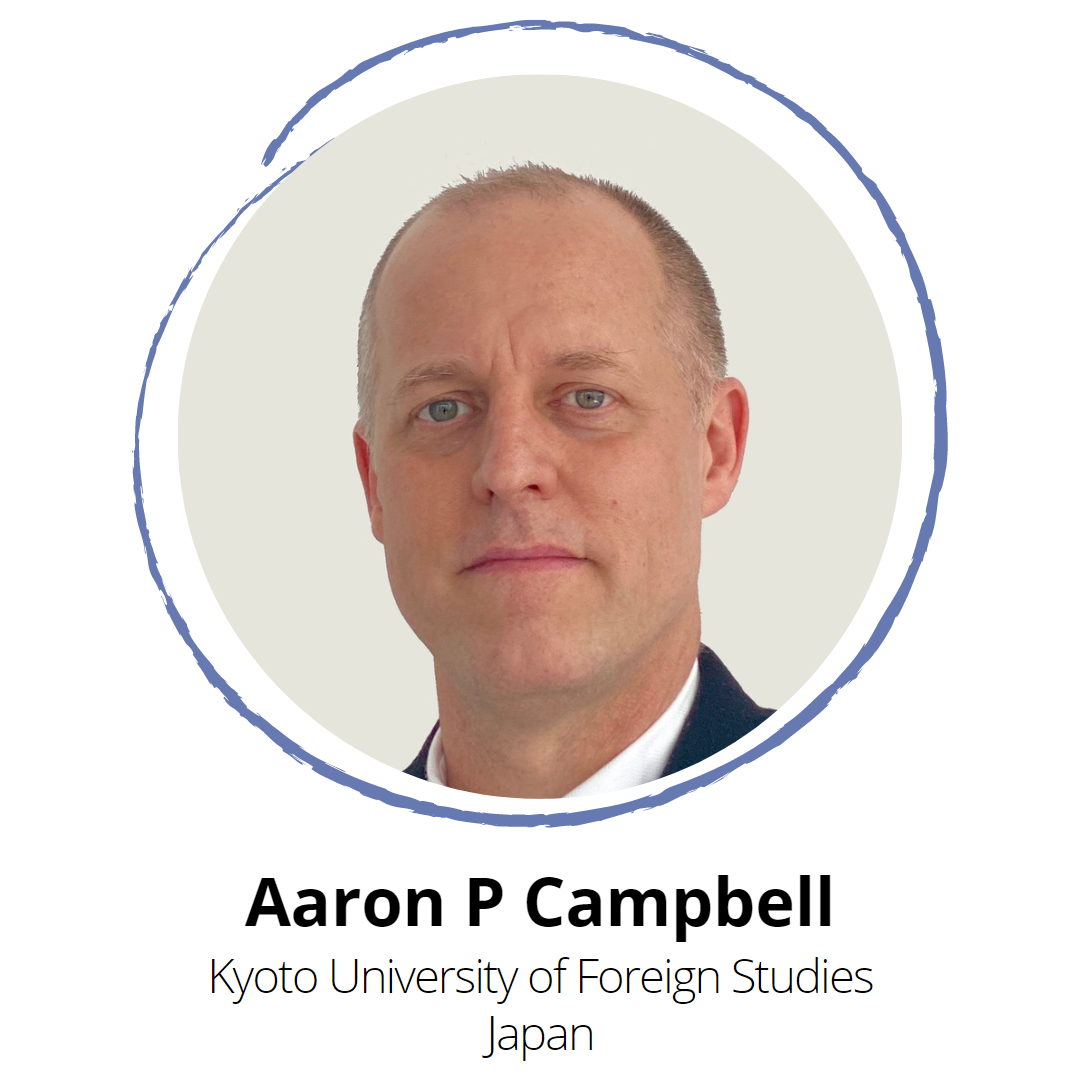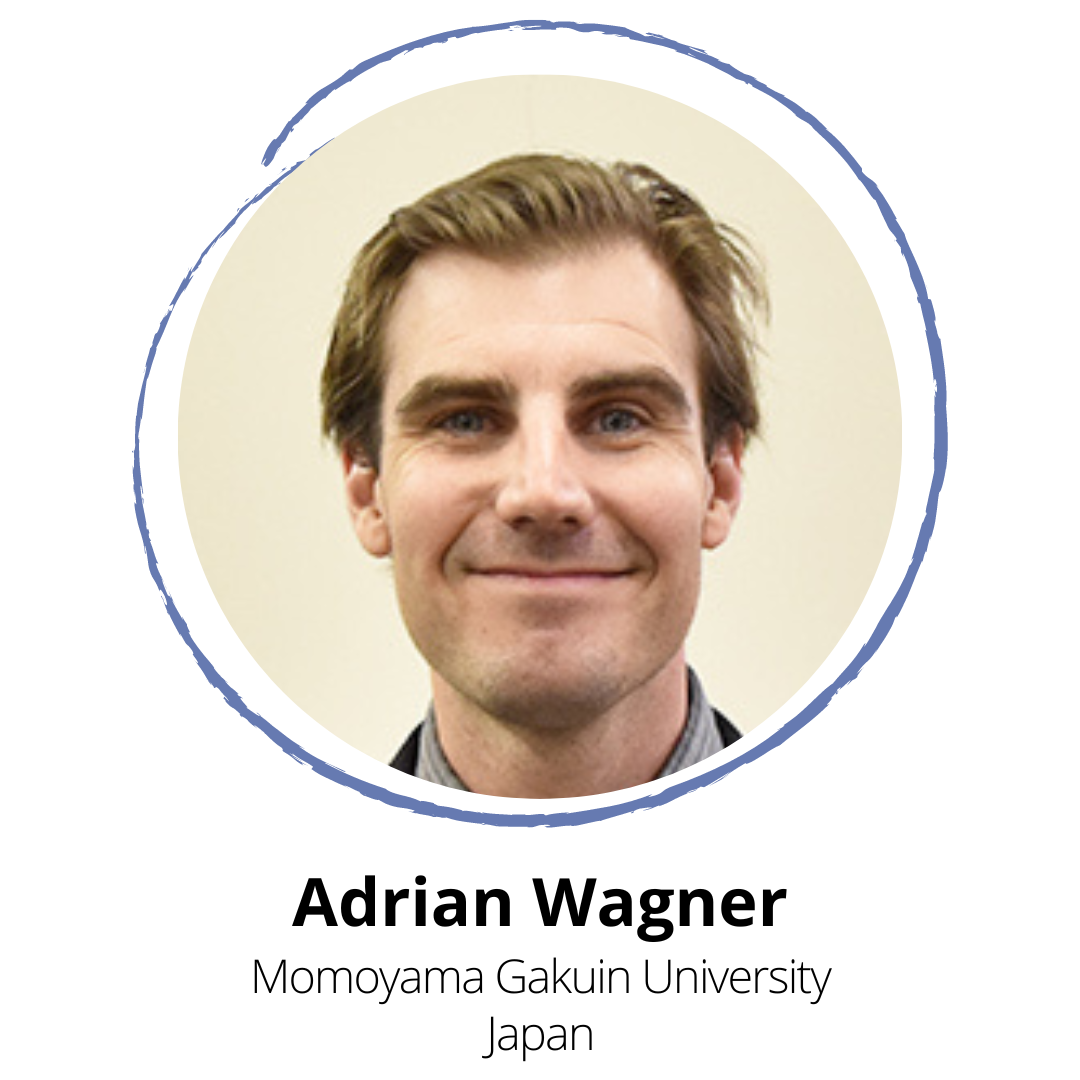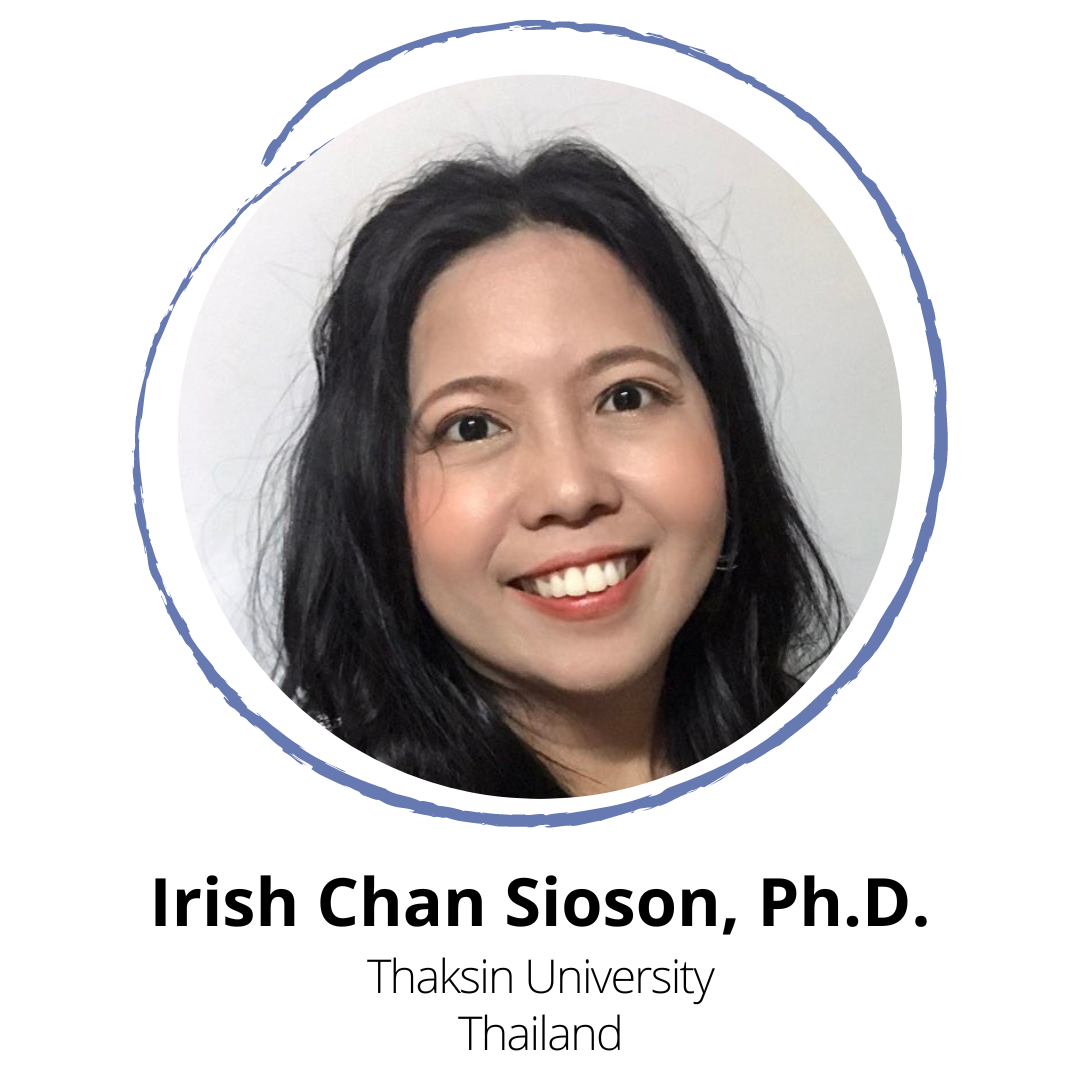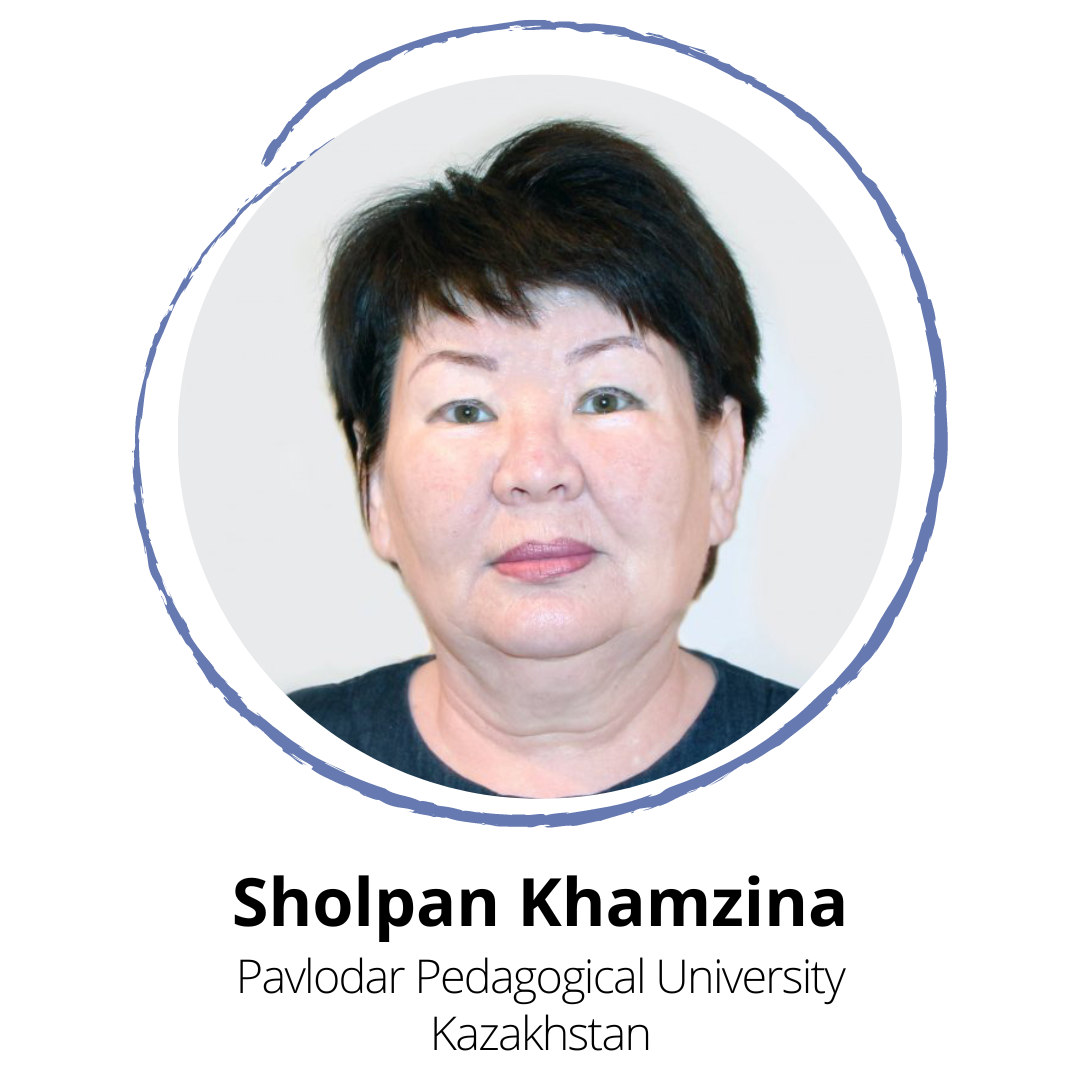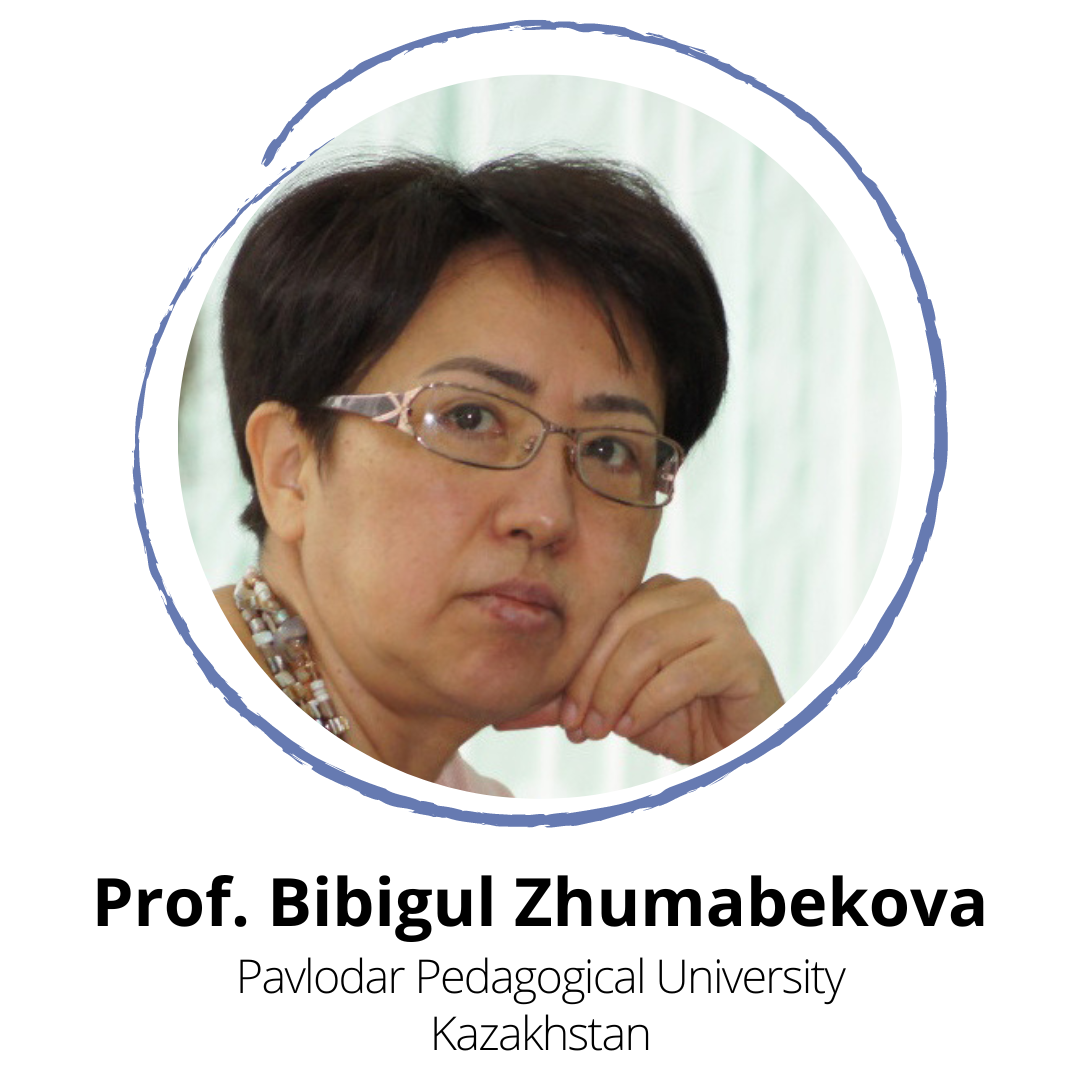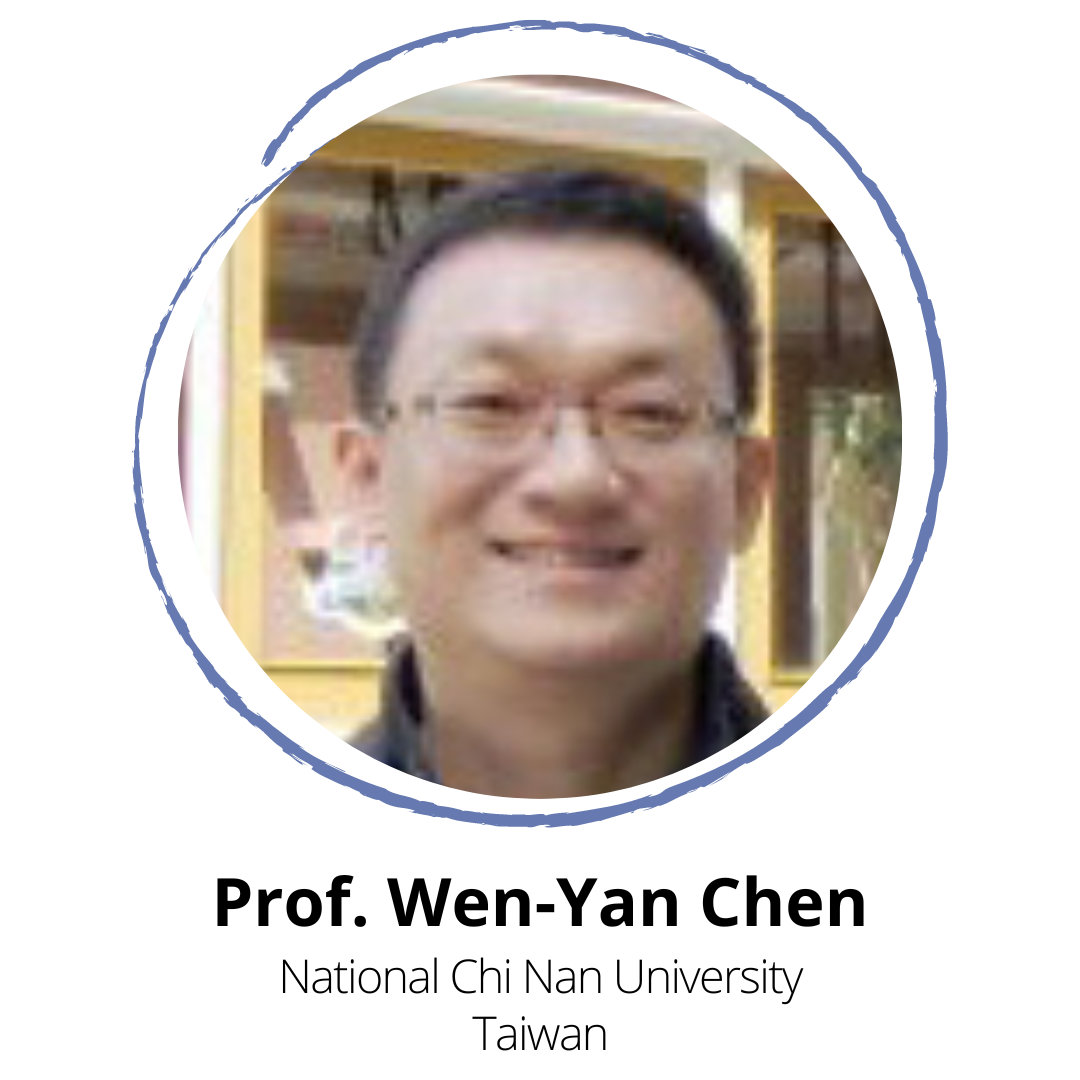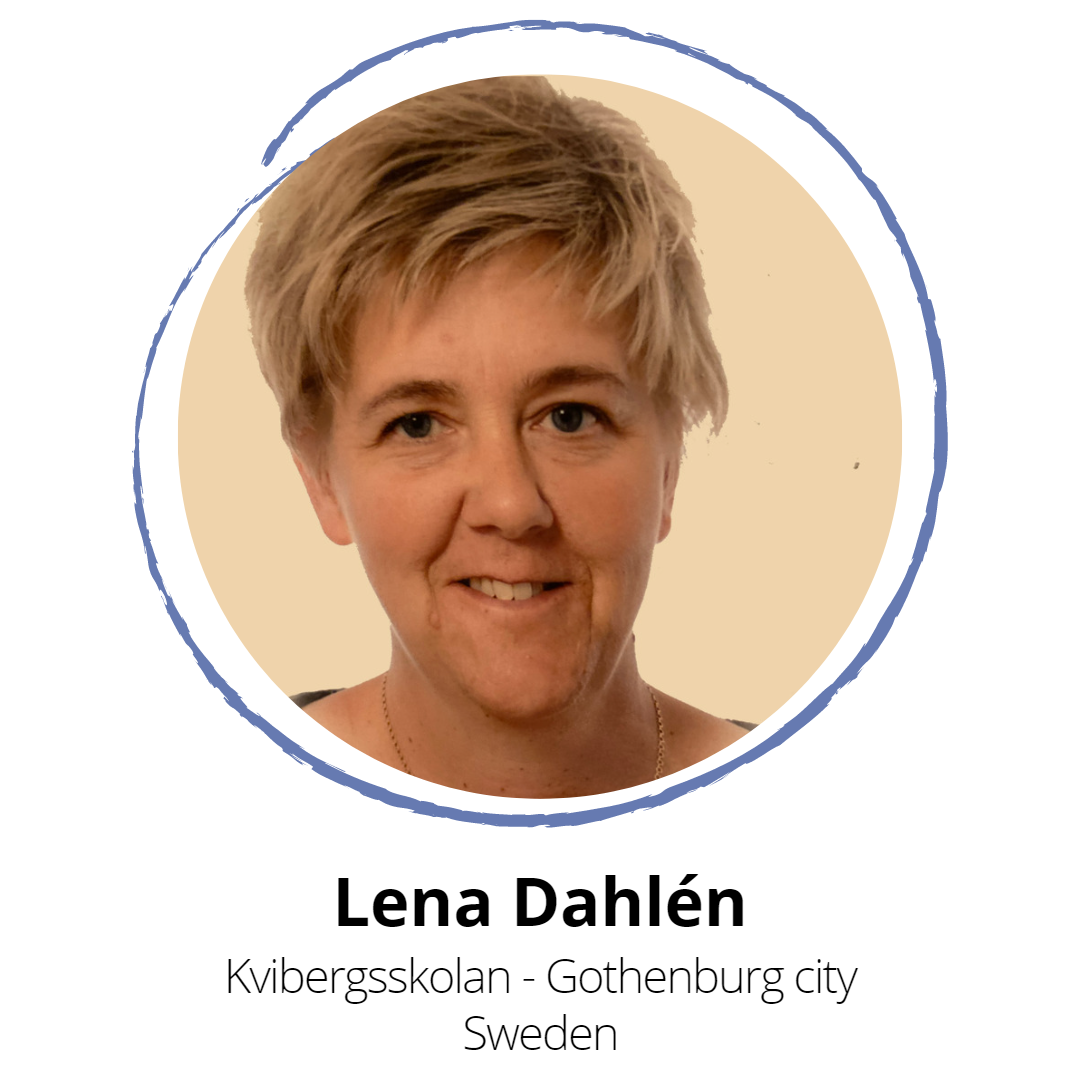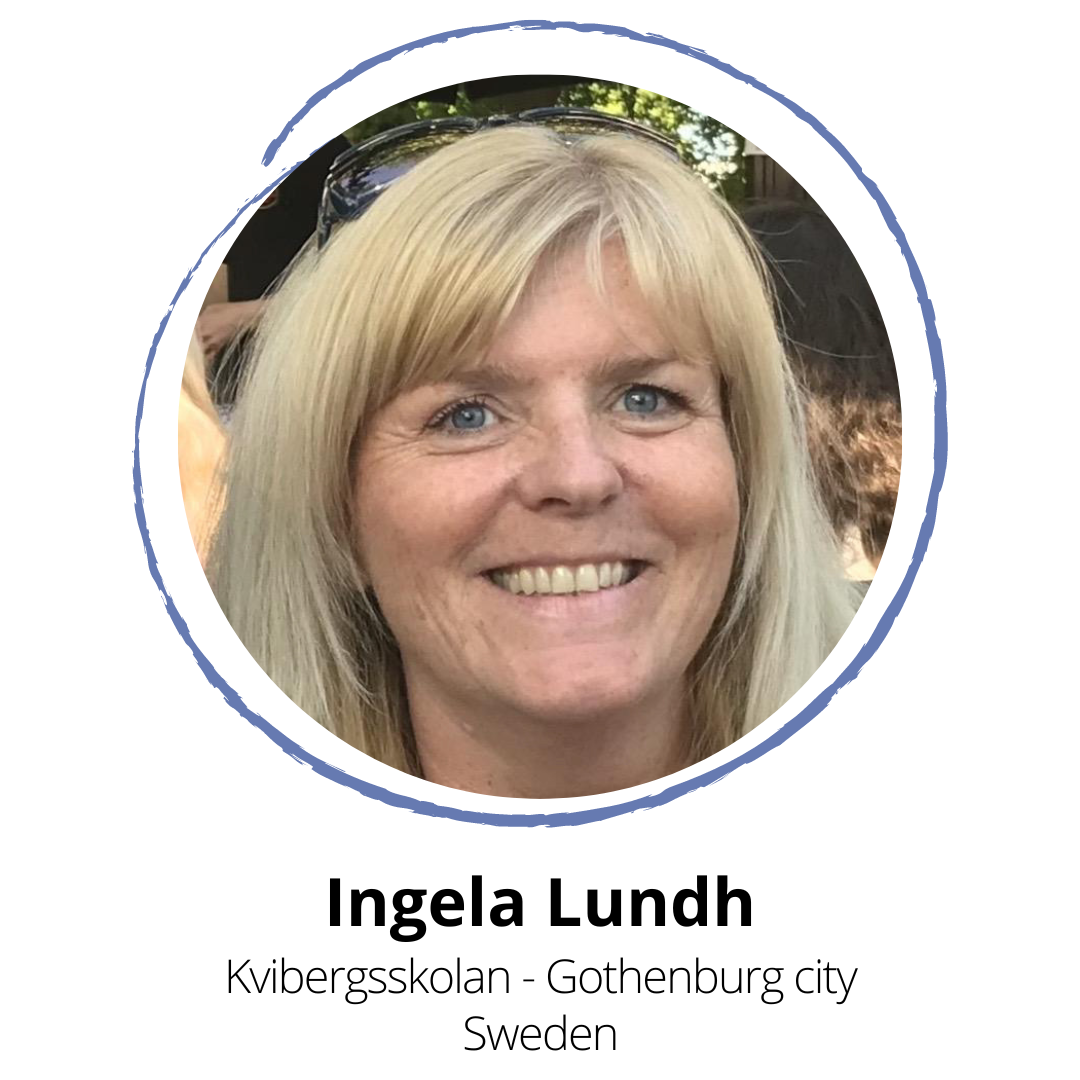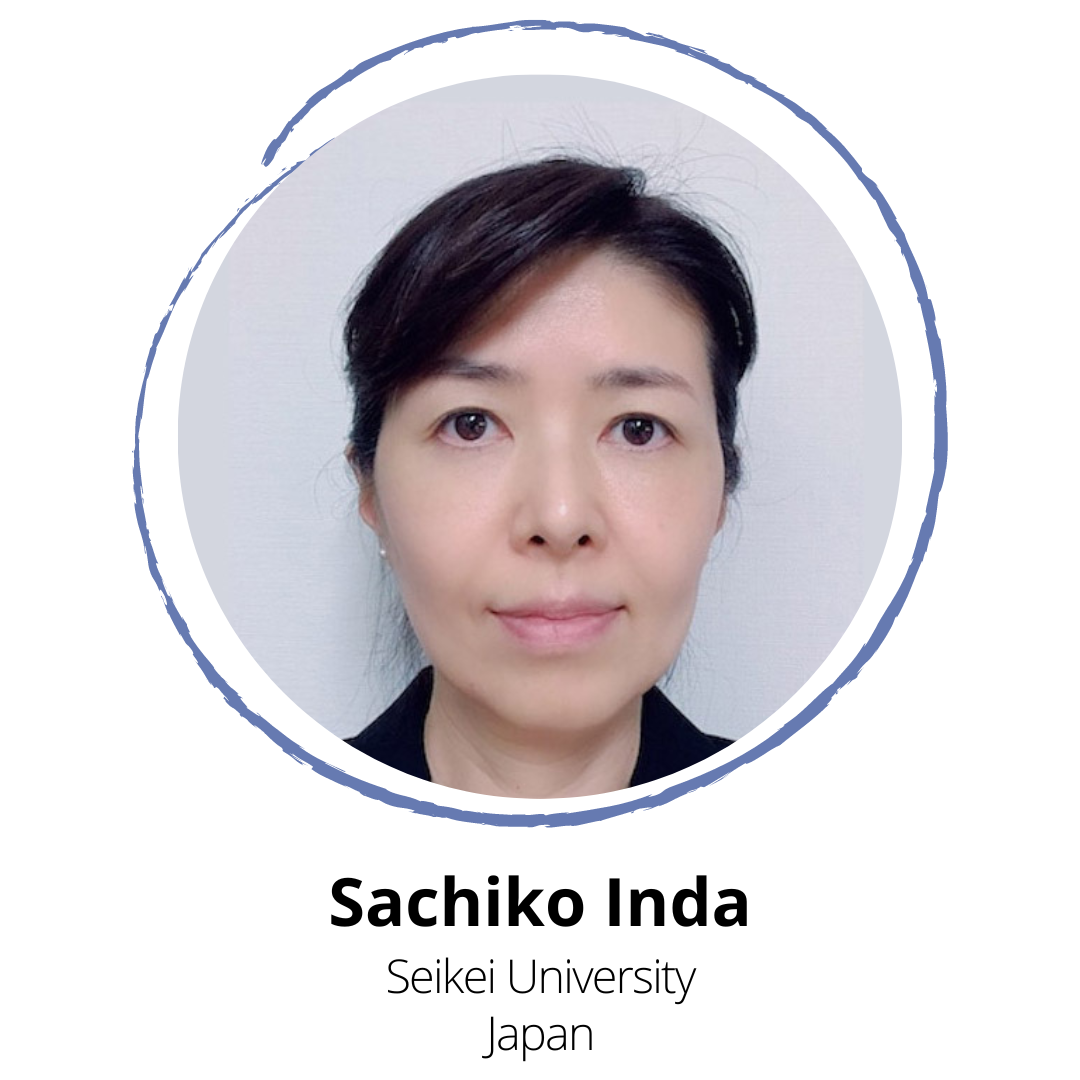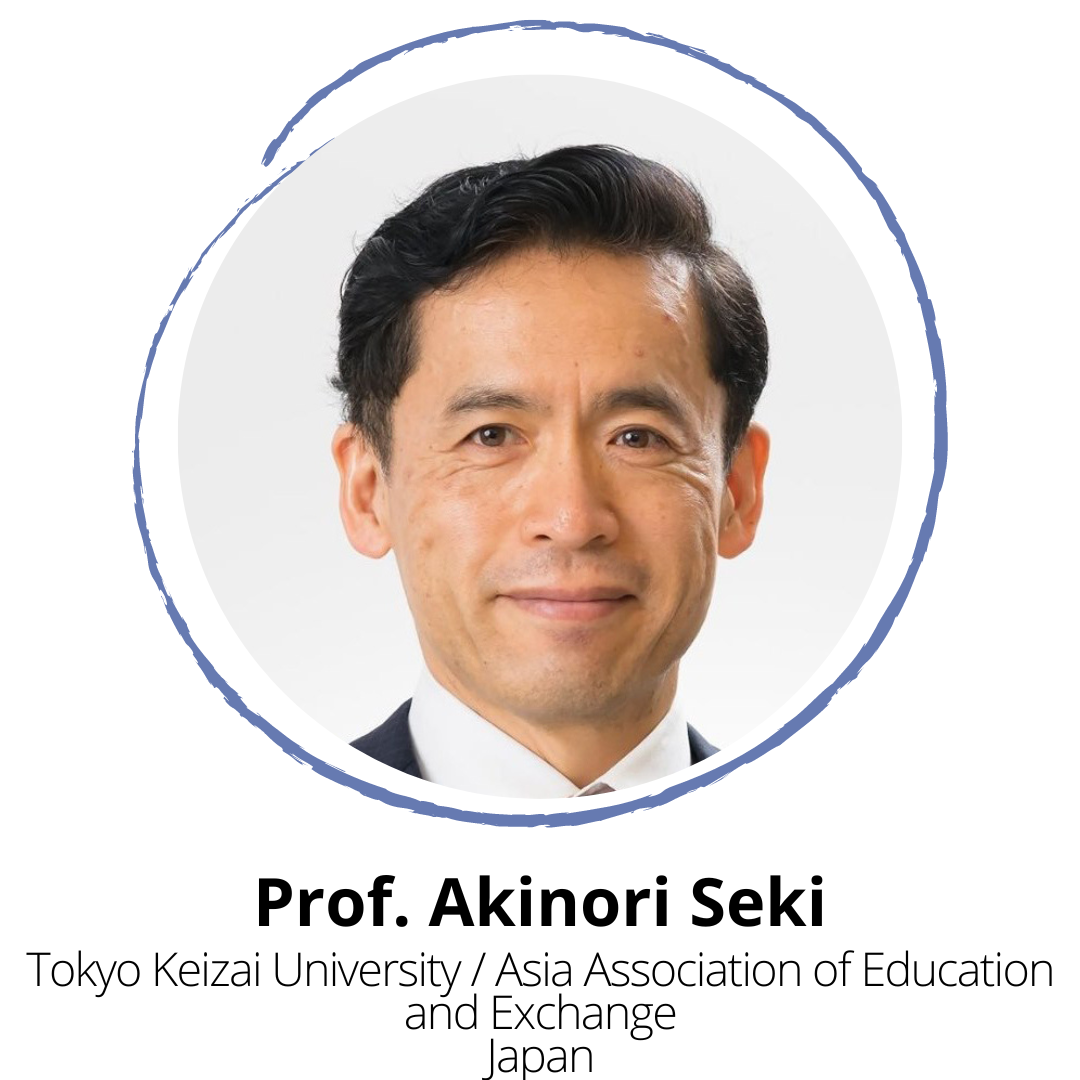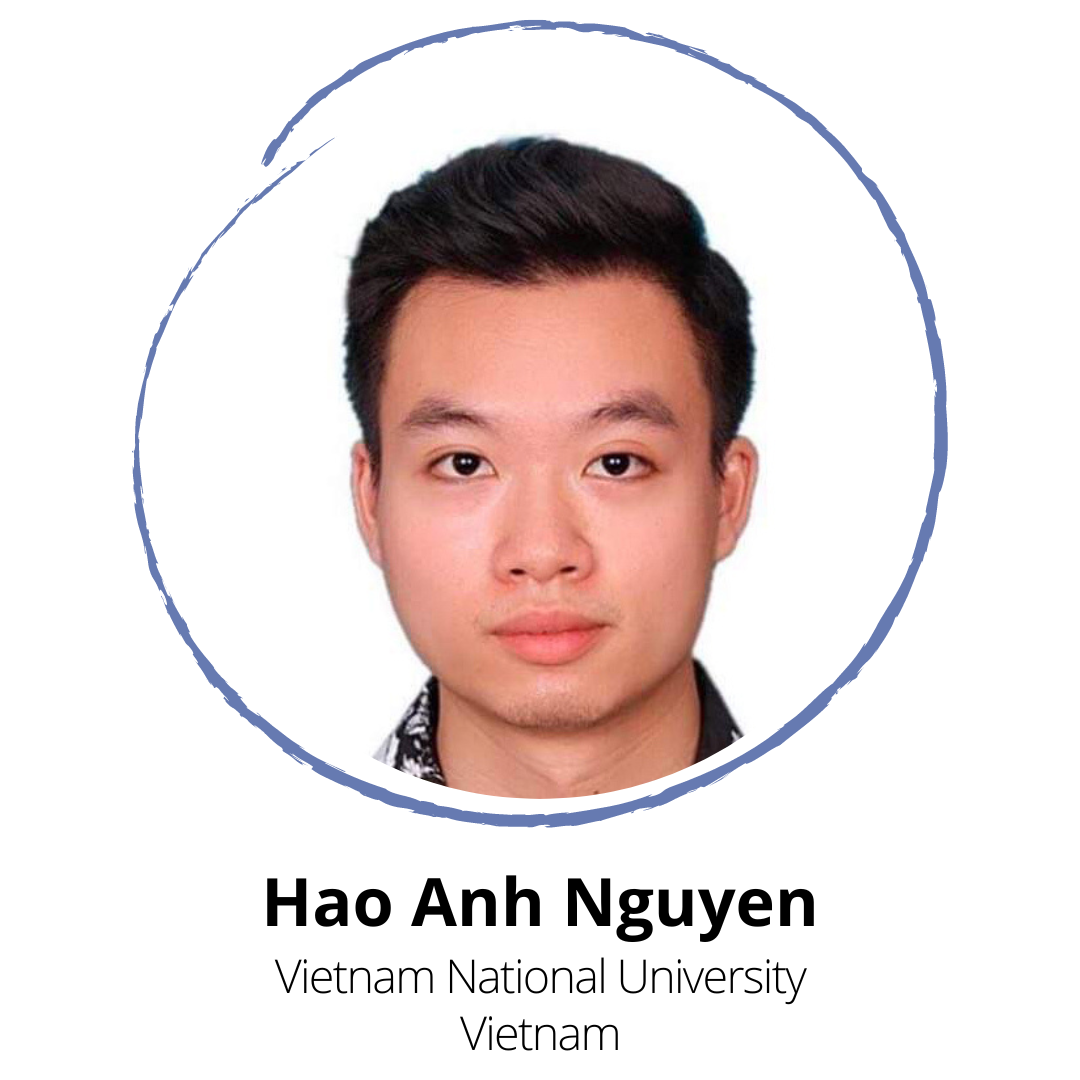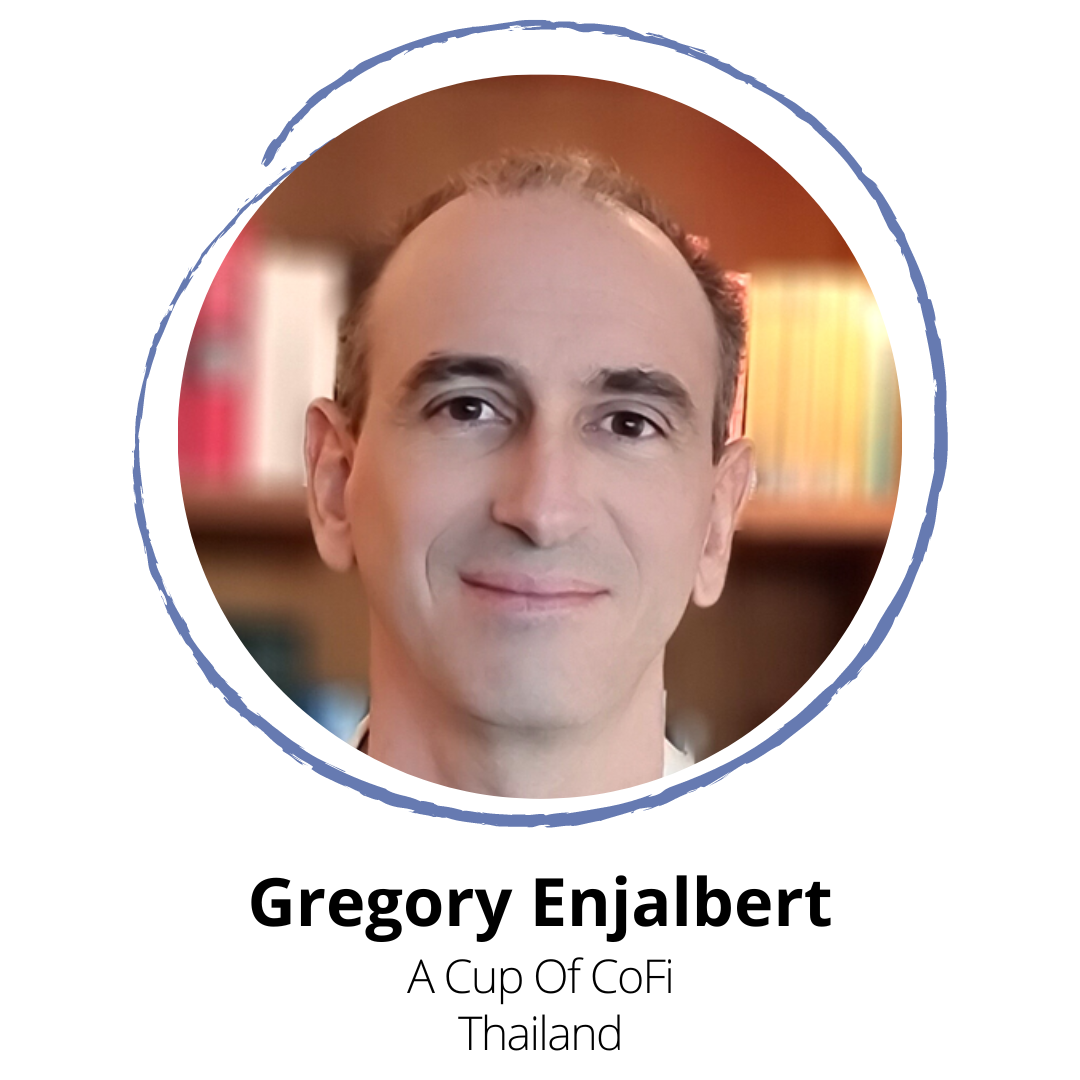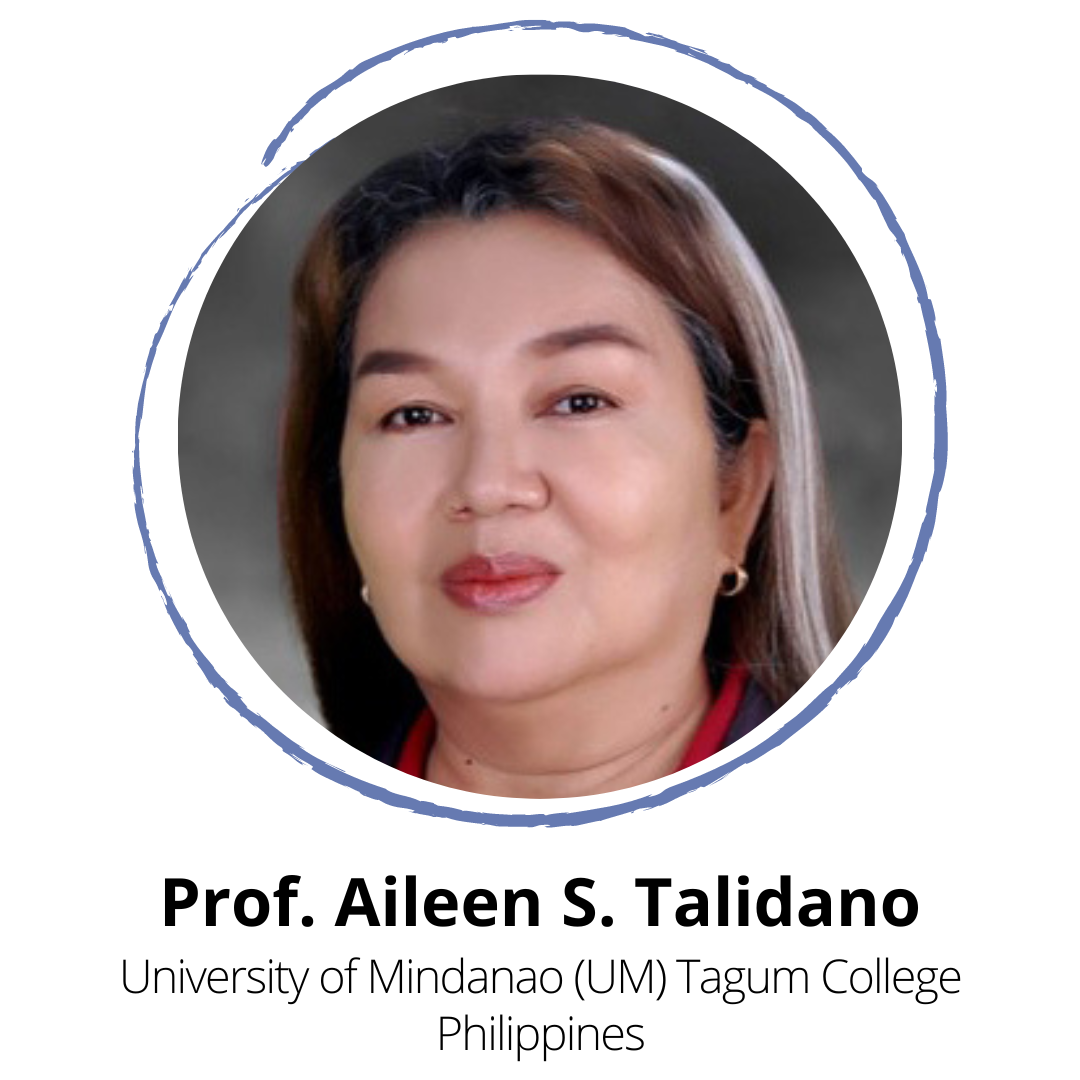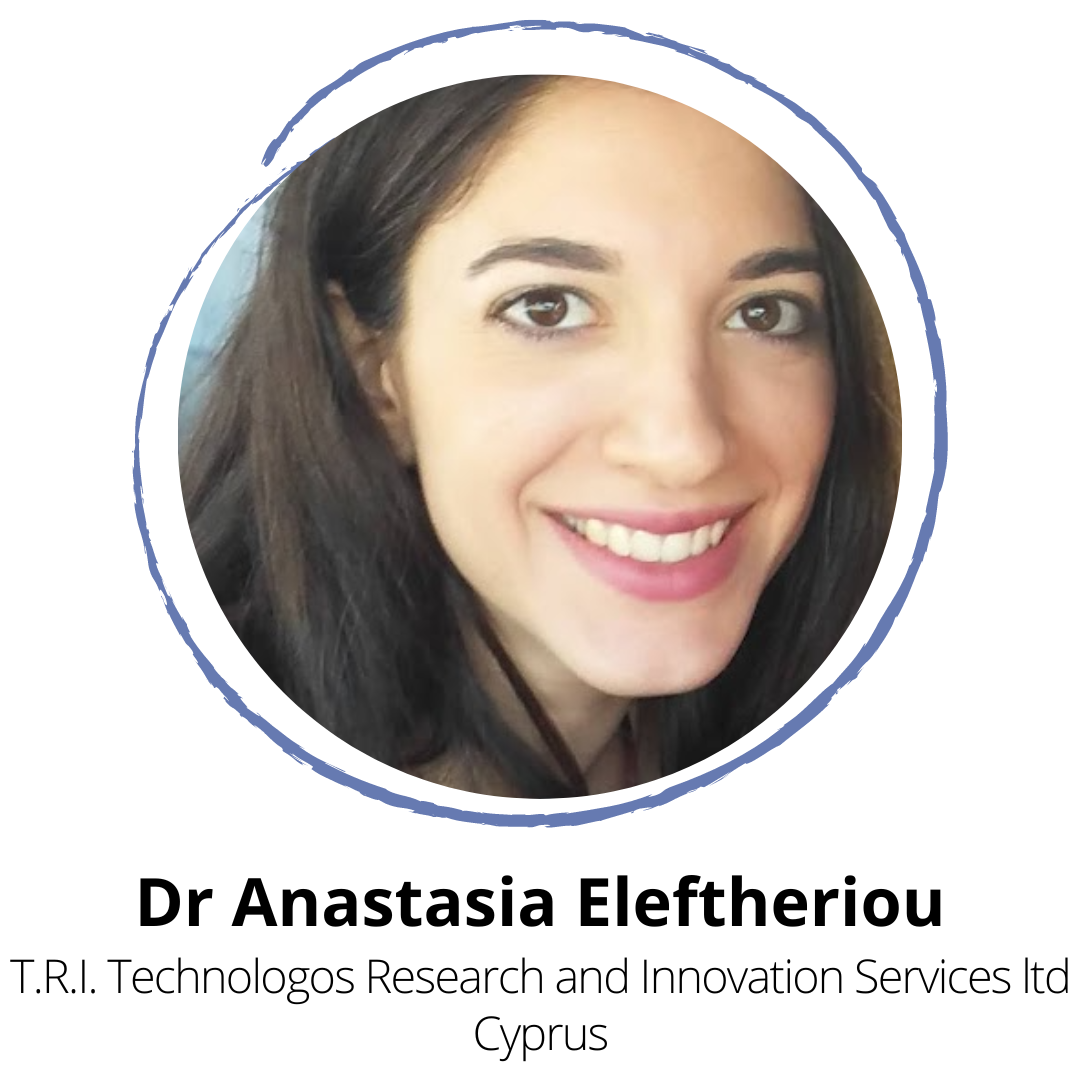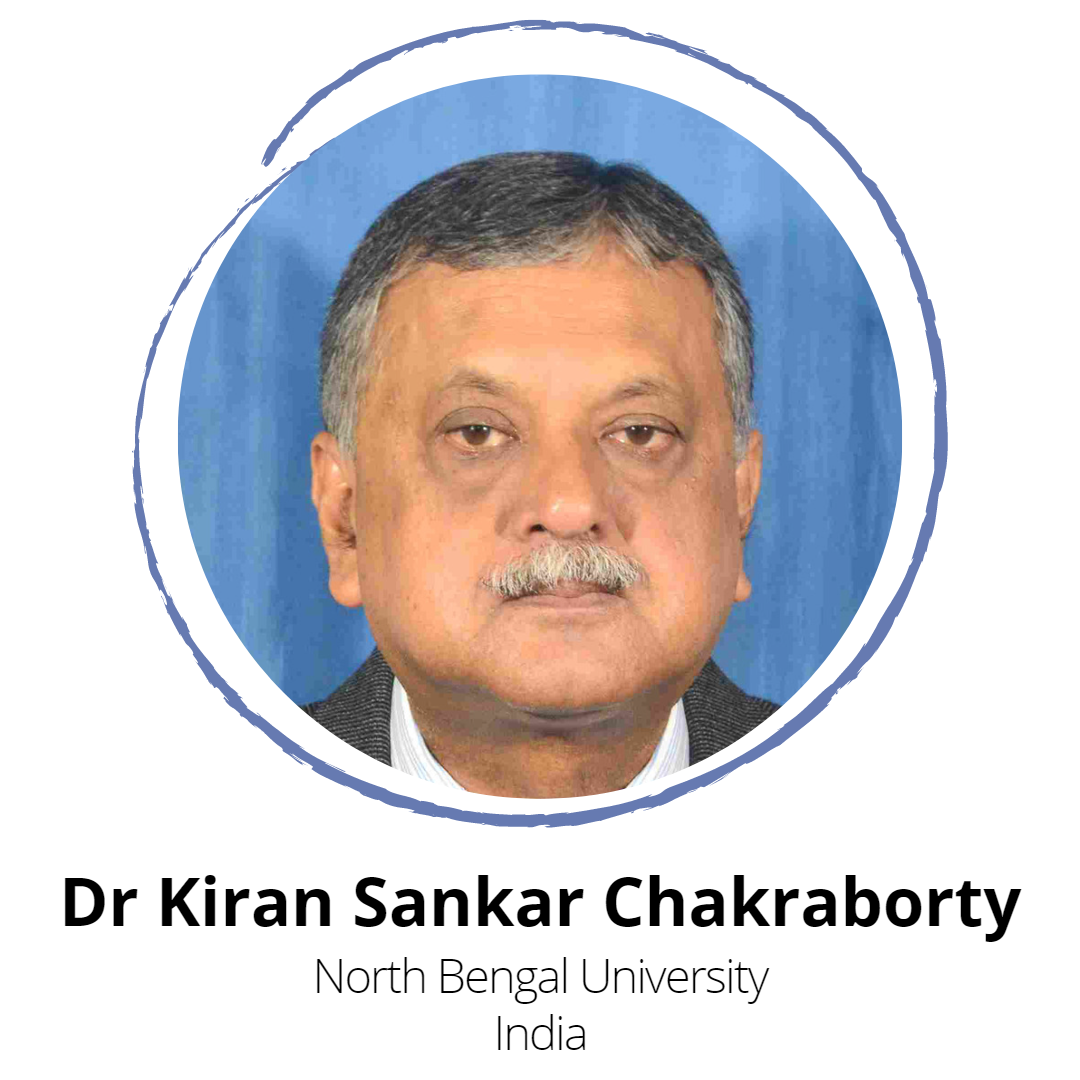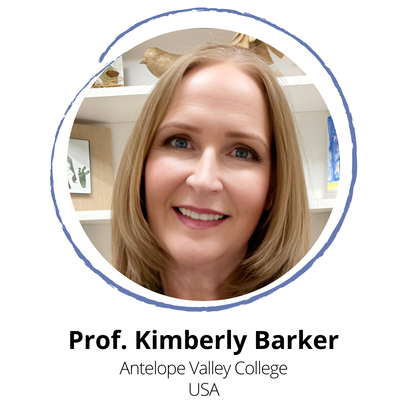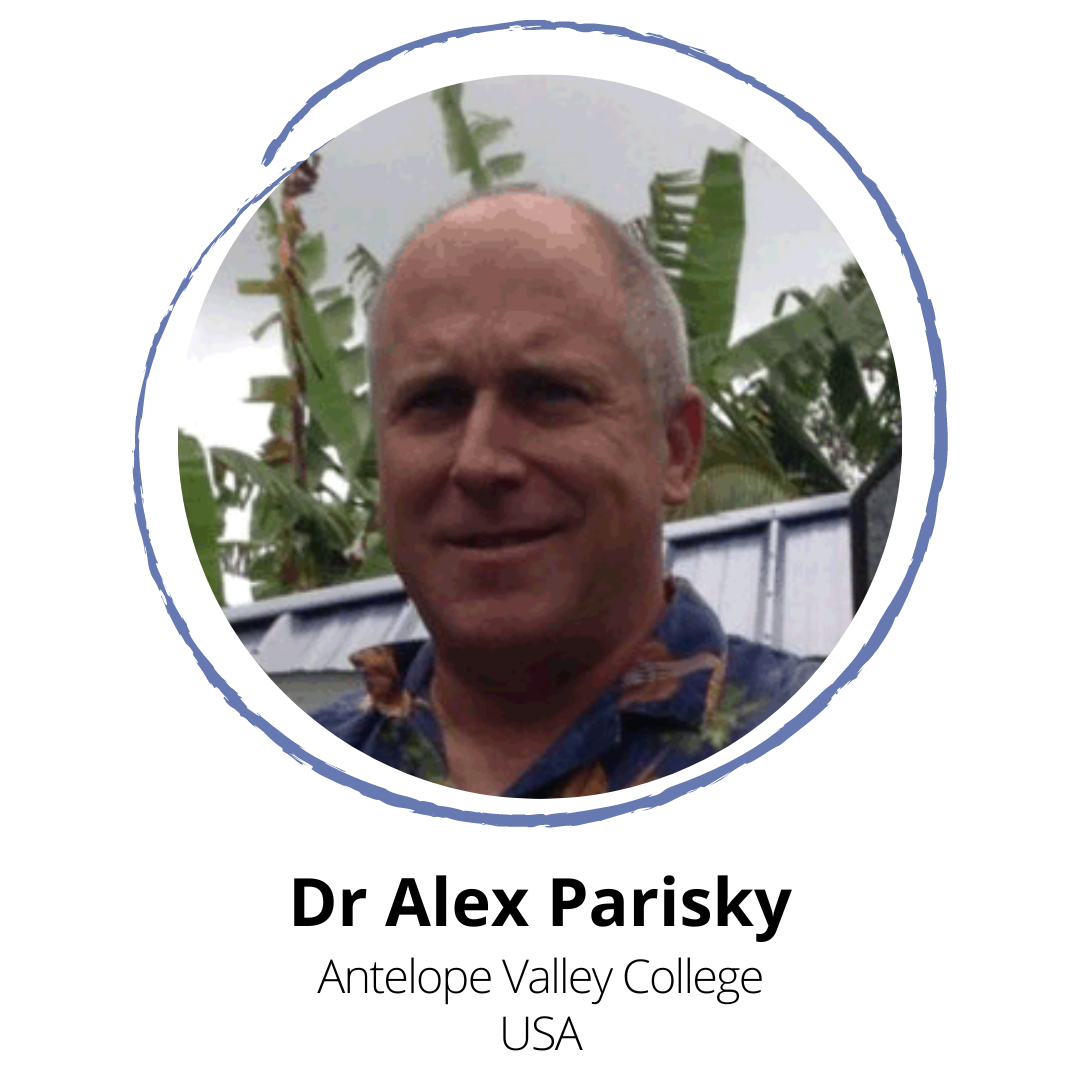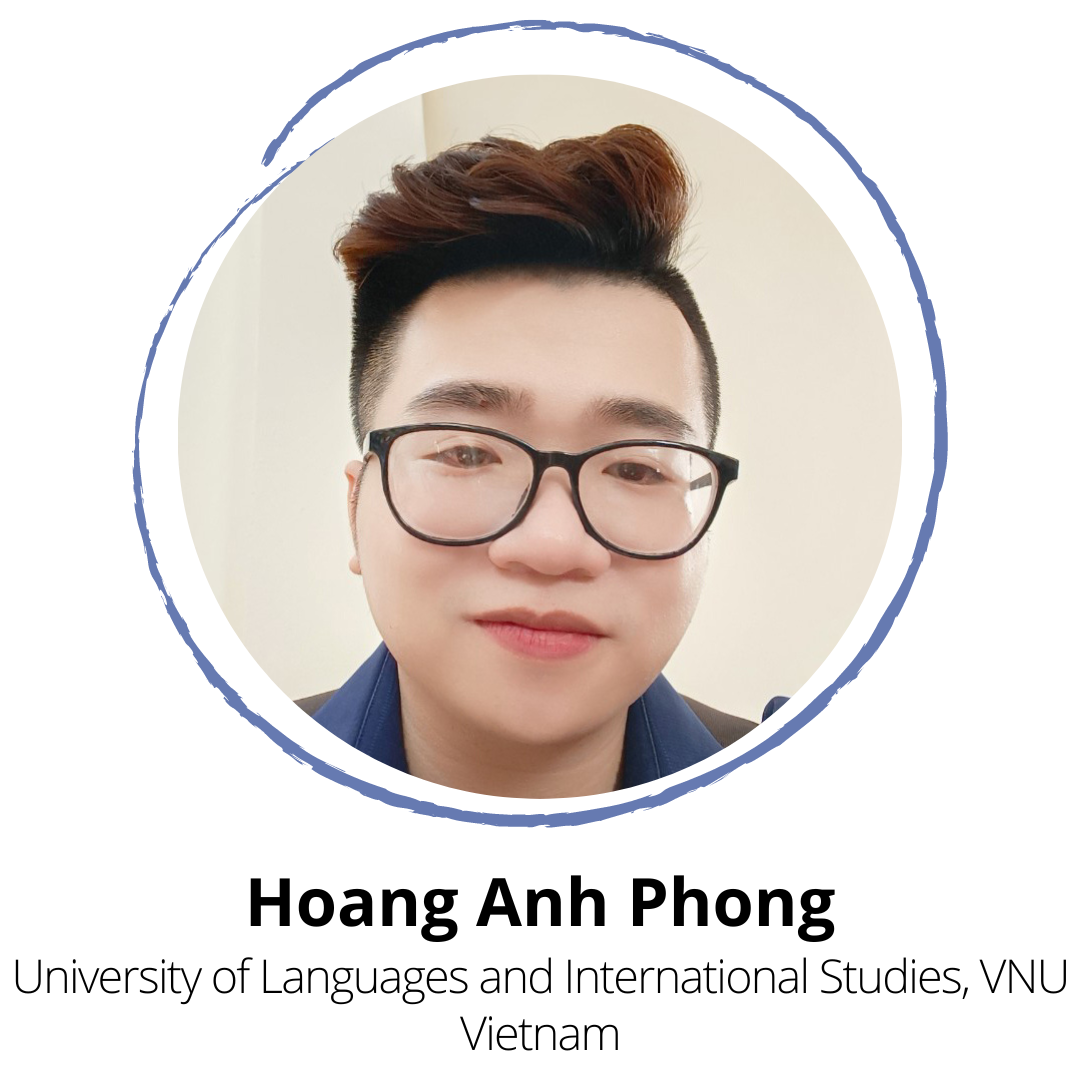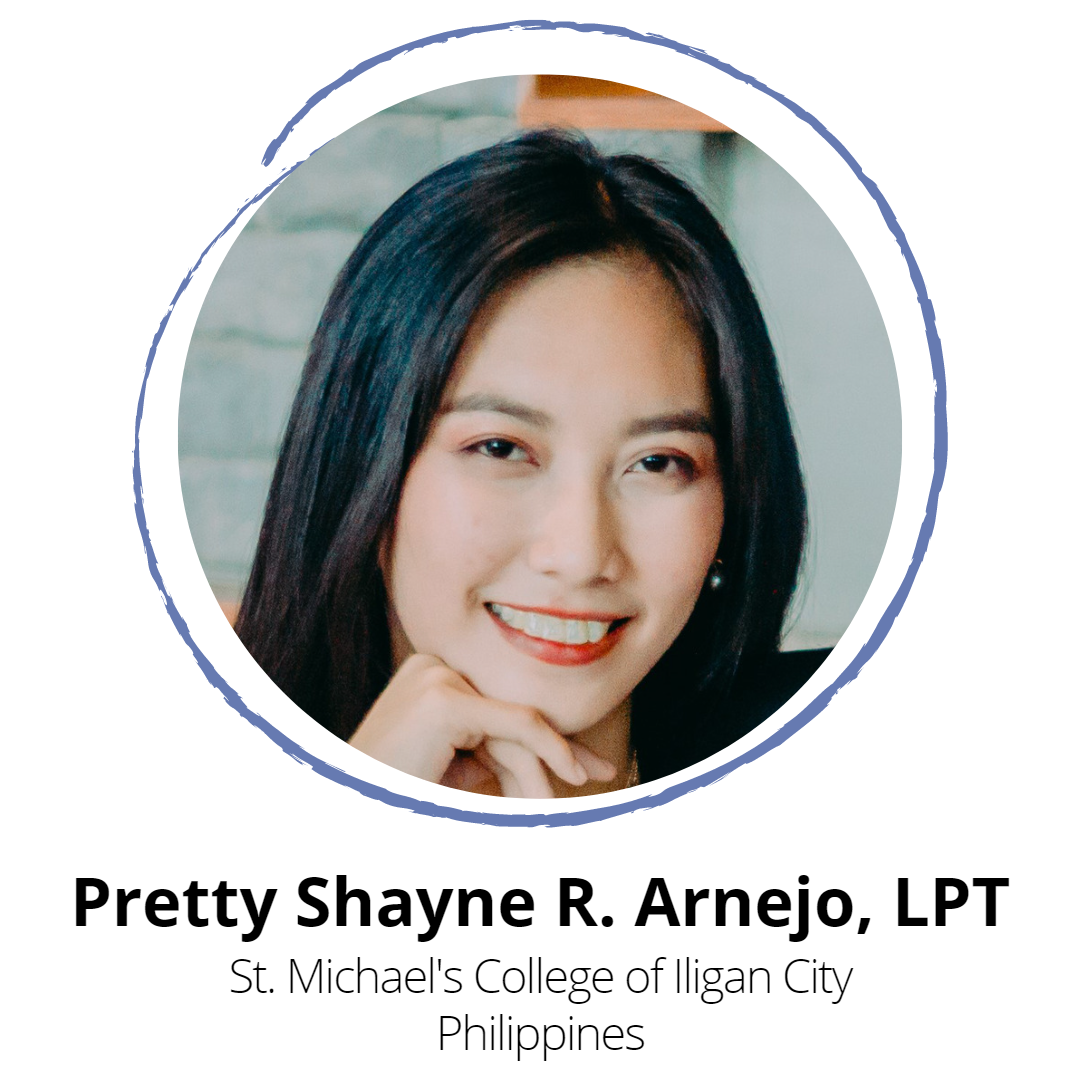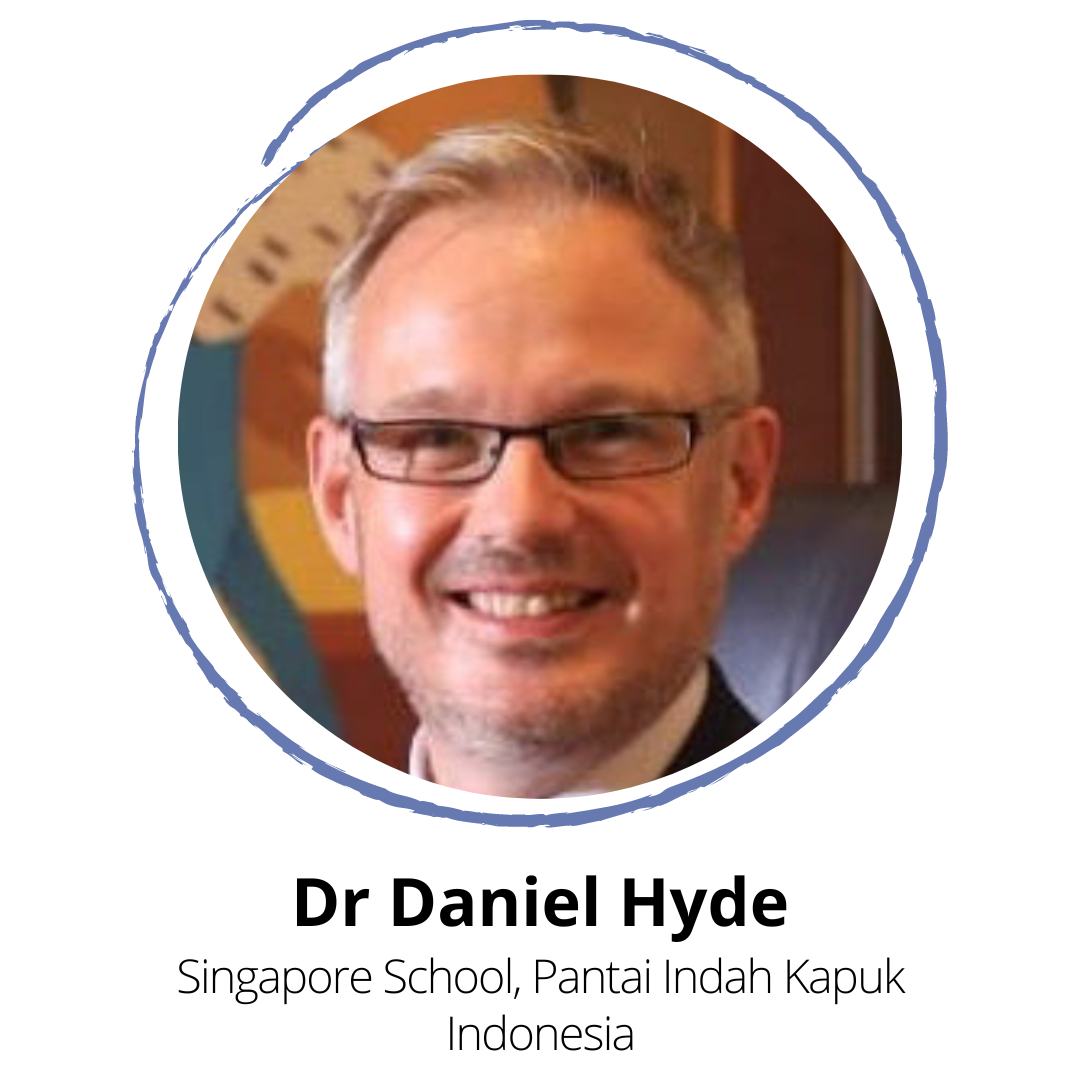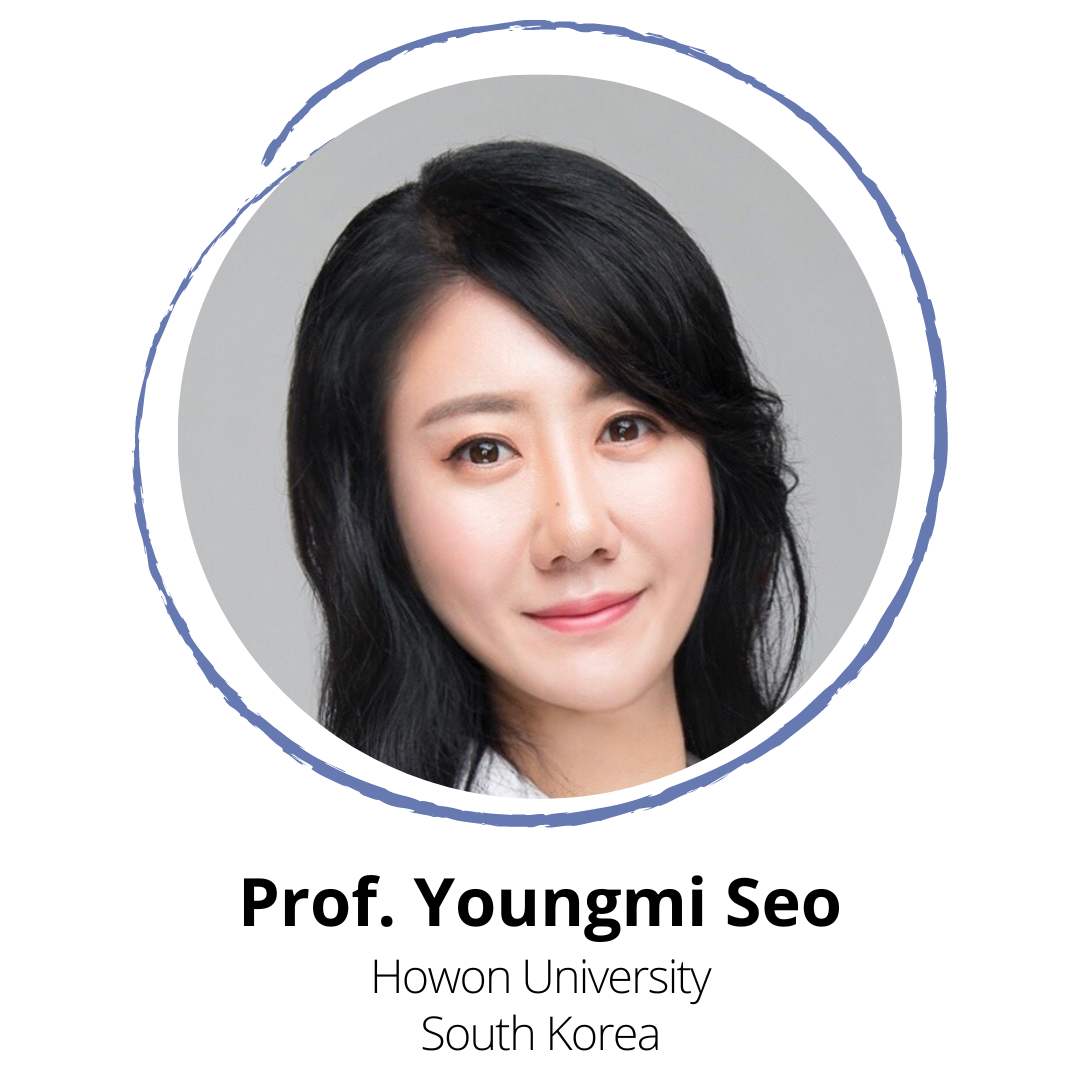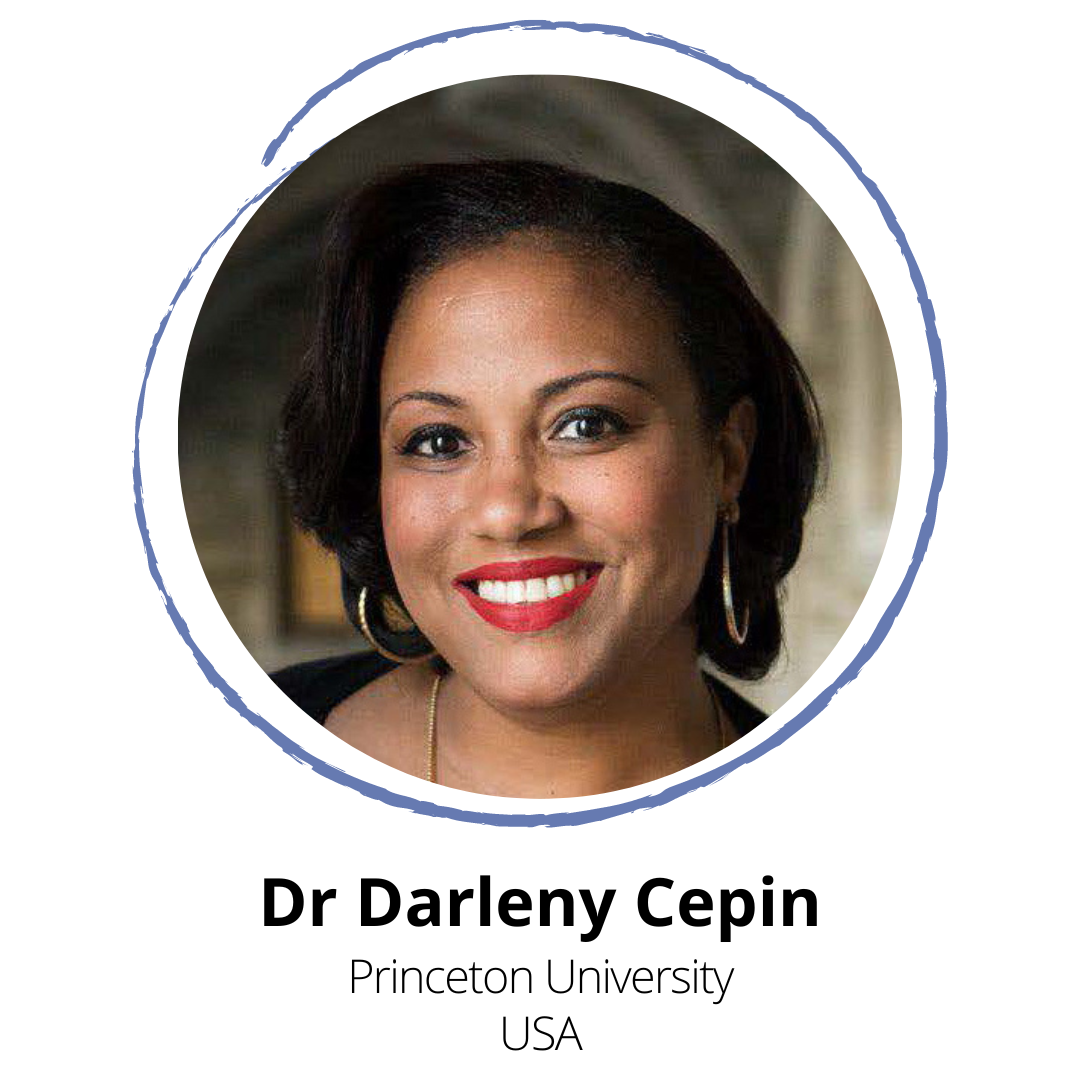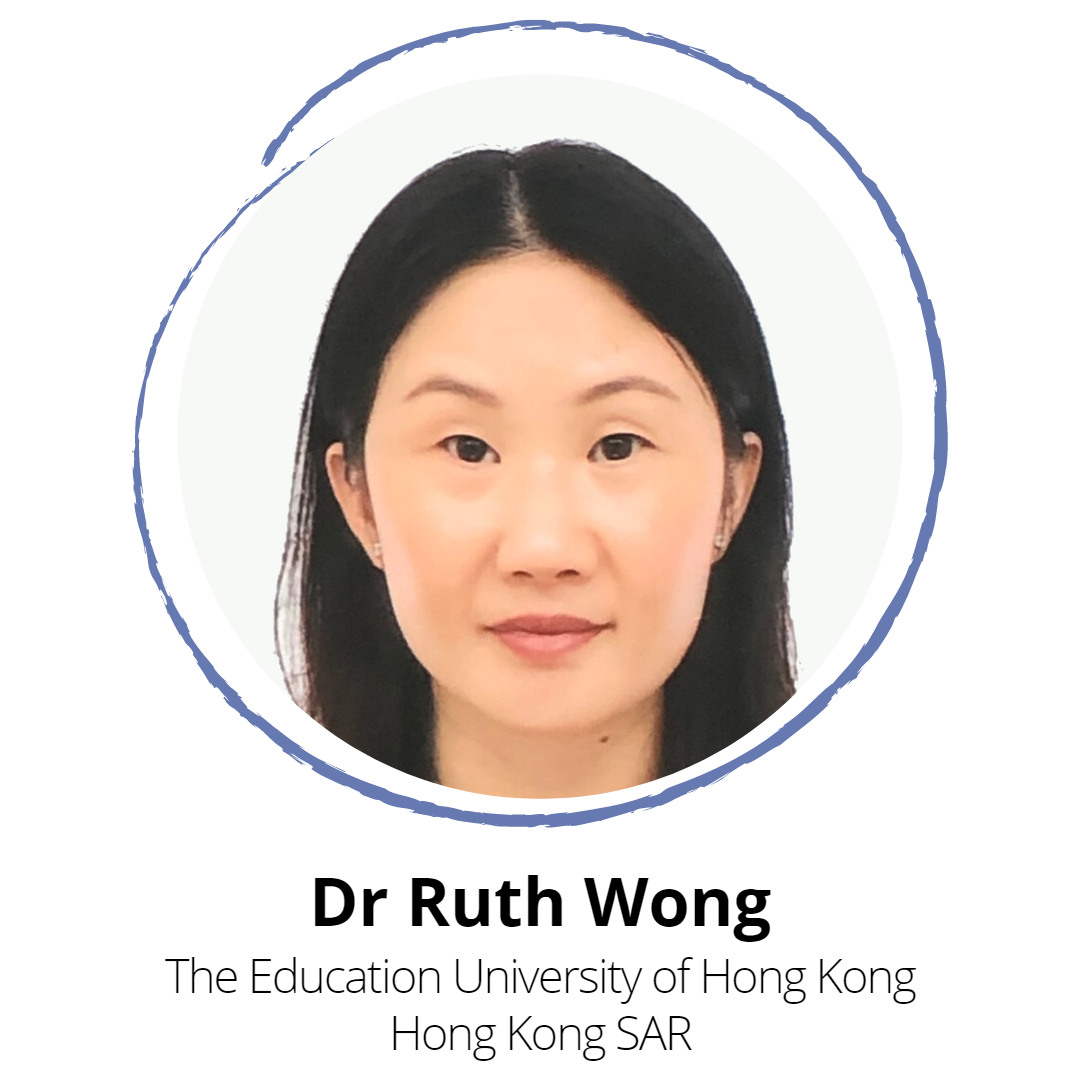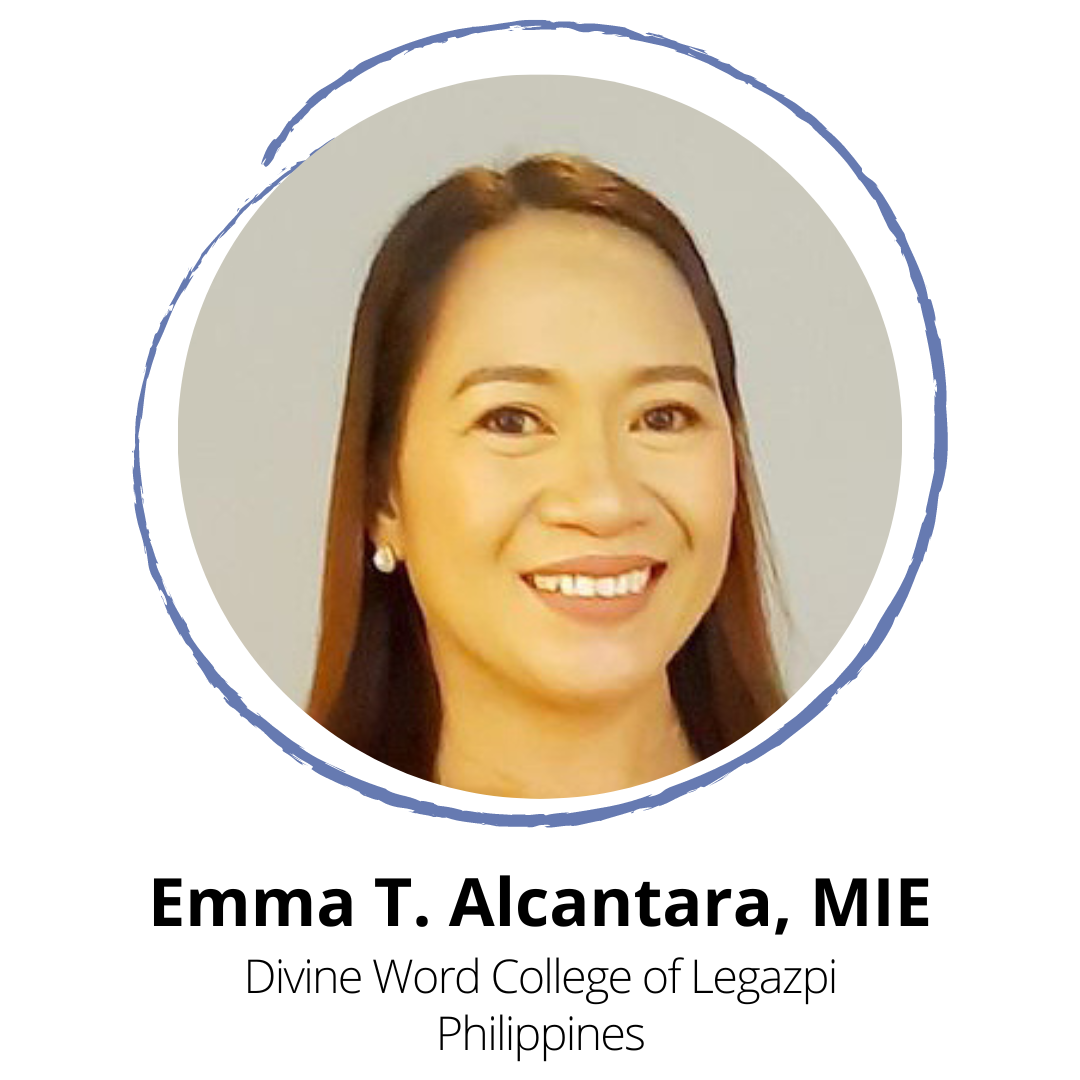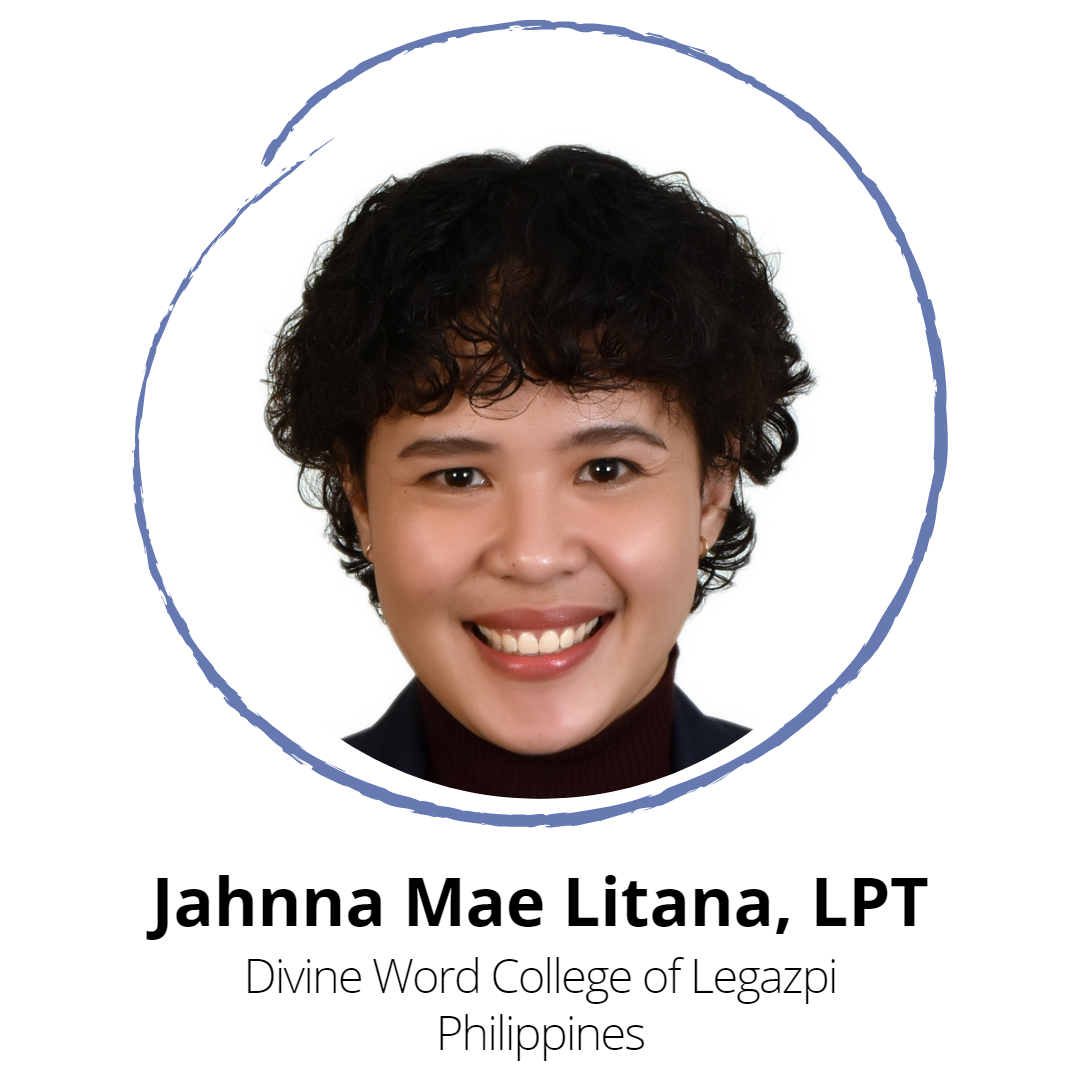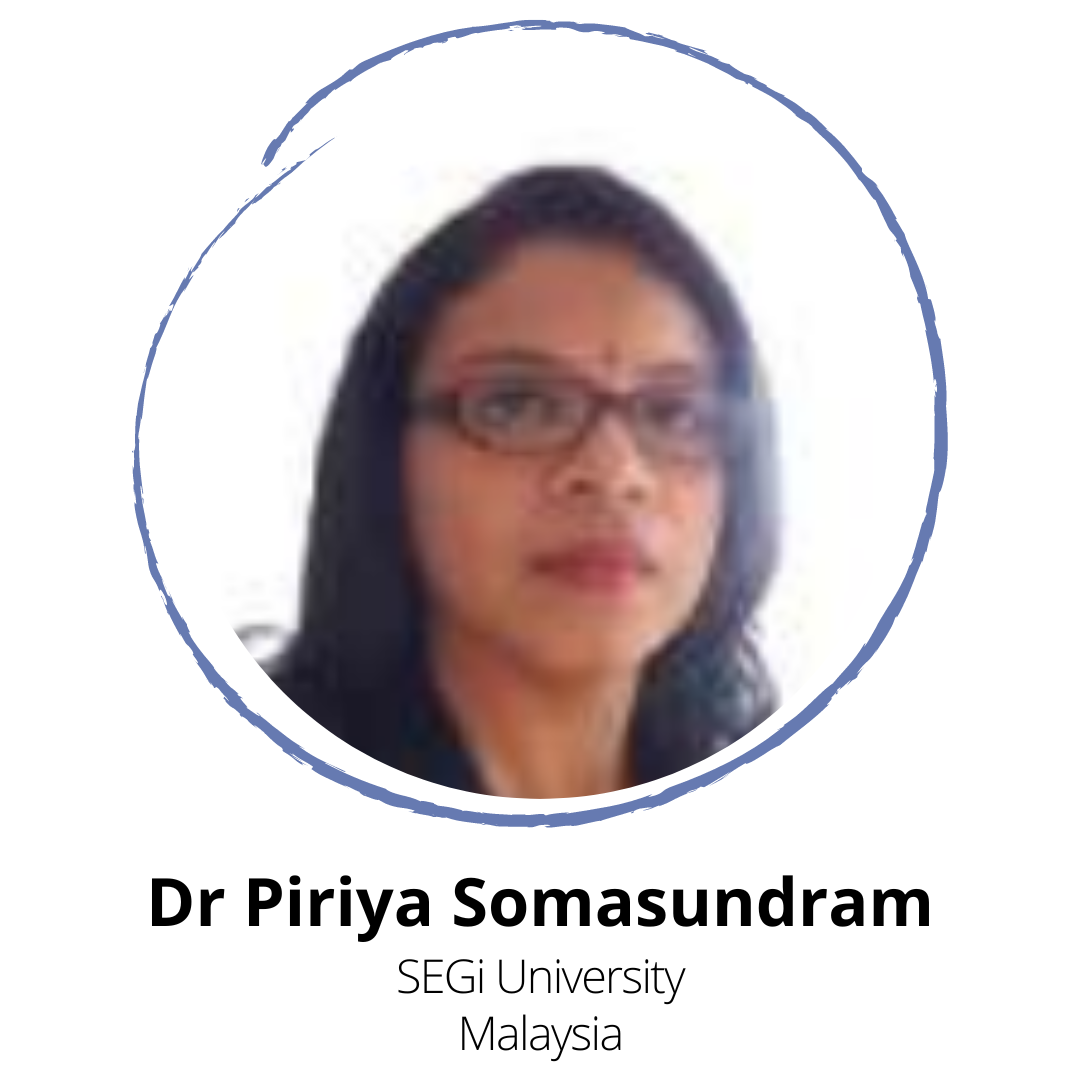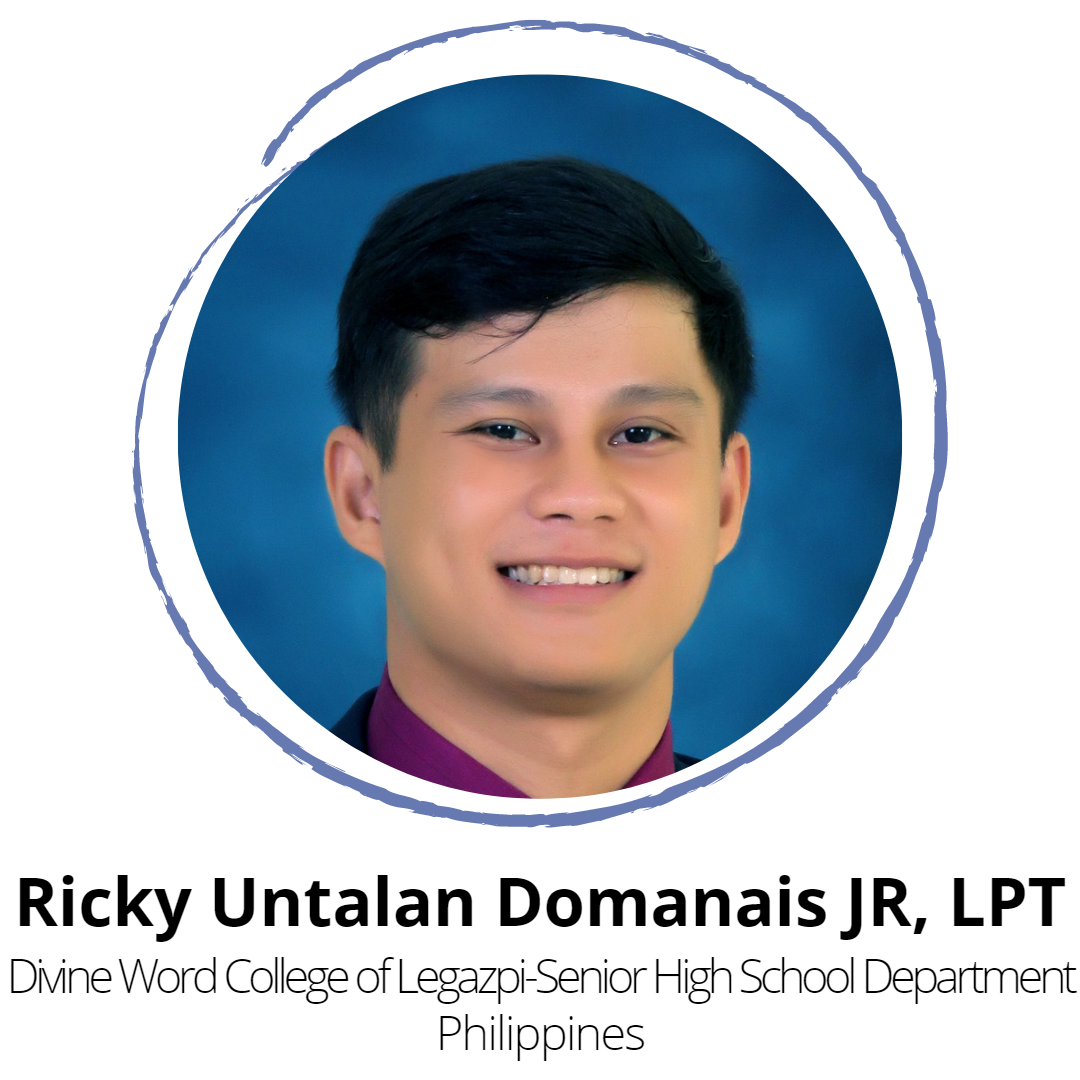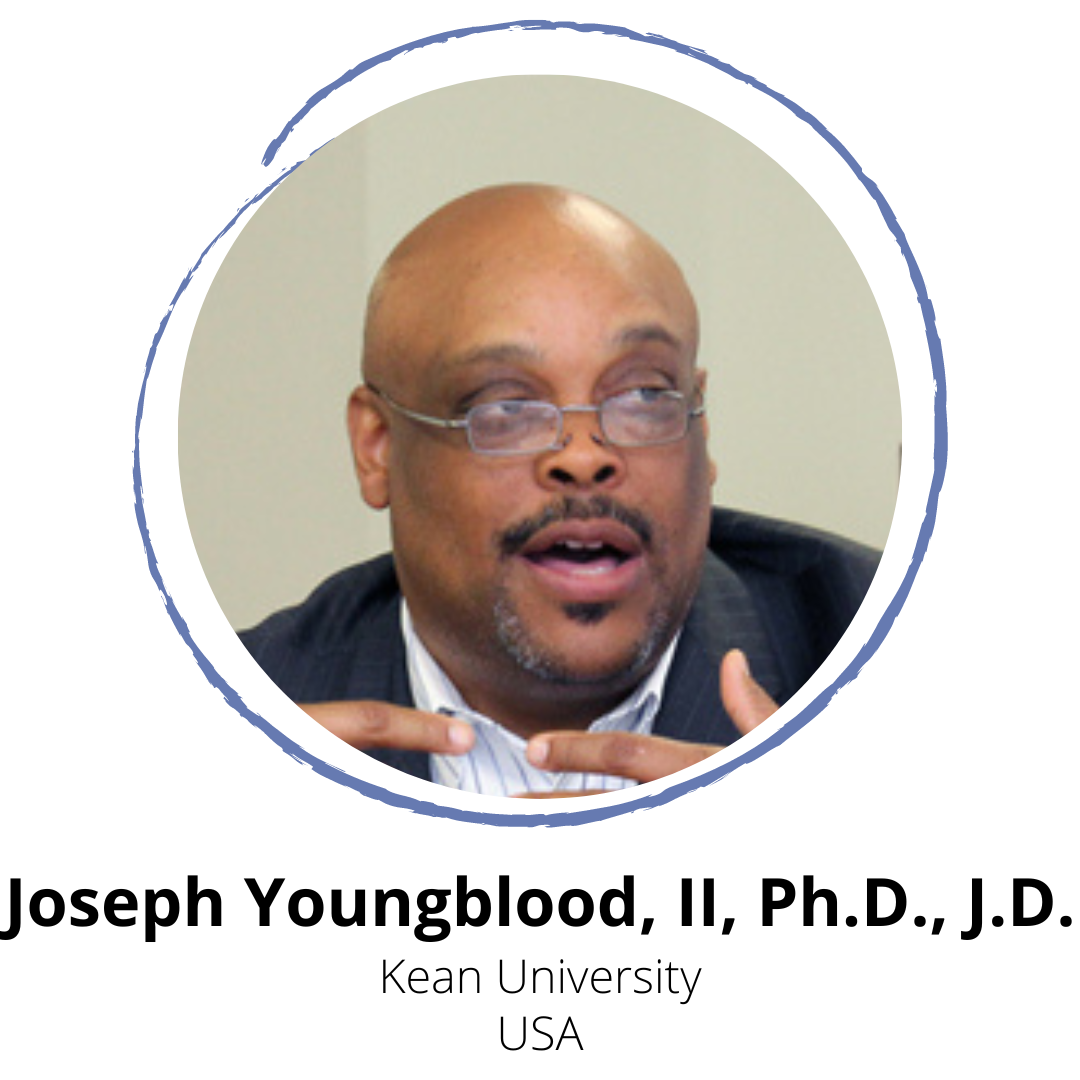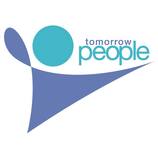18TH EDUCATION AND DEVELOPMENT CONFERENCE [EDC2023]
5th - 7th of March 2023, Bangkok, Thailand
Radisson Suites Bangkok Sukhumvit
SPEAKERS
5th - 7th of March 2023, Bangkok, Thailand
Radisson Suites Bangkok Sukhumvit
SPEAKERS
Instructional Learning Cycles: Reinventing how we Grow Schools
Instructional Learning Cycles provide targeted data-driven support to grow teachers. Unlike most professional development models, Instructional Learning Cycles provides individualized support to teachers, while simultaneously targeting school initiatives, goals, and improvement plans. From data collection, to sharing best practices, to leveraging resources, teachers will feel supported and given the opportunity to grow. This presentation will outline the cycle and will provide step-by-step instructions and examples for you to implement this learning cycle at your school.
|
Christian Polizzi has worked as an administrator and teacher dedicated to supporting diverse learners through a data-driven approach. Through teaching at private international schools, to public charters, he has had an extensive set of experiences working and leading diverse groups of students and teachers focused on academic rigor, culturally relevant pedagogy, and community engagement. Through his experiences as a teacher, he has worked closely with the IB, IMYC and IPC curriculum, and common core standards. After receiving his Masters in Educational Leadership and Administration from George Washington University, Christian accepted a position as the Academic Coordinator at Washington Global. Aside from developing comprehensive policies and programs to support student achievement, Christian has been dedicated to leading professional learning communities focusing on differentiation, Understanding by Design (UBD), and creating a data-driven classroom.
|
The Young Global Researchers Project (YGRP): Changemakers in the Community
The main aim of the Young Global Researchers Project is to build an online platform for facilitating research, writing and discussion forums linking universities and communities in Japan with their counterparts in other Asian countries and beyond. This is an authentic university-community engagement initiative to encourage students and educators to collaborate in learning more about key societal issues, and the actions needed to address them, through interactions with individuals and organizations in their local areas.
In this presentation, we will introduce the first phase of the YGRP, “Changemakers in the Community”, which was launched in late May 2022, with student participants and faculty advisors from five institutions, all of whom are members of the Asia-Pacific University Community Engagement Network (APUCEN). In June and July, pairs of students from each of the institutions conducted secondary and primary source research in the field on a specific issue, interviewing, and often volunteering with, an organization connected to their chosen theme. Following the fieldwork activities, and with the guidance of their faculty advisors, participants then compiled written reports, with transcribed interviews, photos and supplementary material, which was then uploaded to the project website.
In this presentation, we will introduce the first phase of the YGRP, “Changemakers in the Community”, which was launched in late May 2022, with student participants and faculty advisors from five institutions, all of whom are members of the Asia-Pacific University Community Engagement Network (APUCEN). In June and July, pairs of students from each of the institutions conducted secondary and primary source research in the field on a specific issue, interviewing, and often volunteering with, an organization connected to their chosen theme. Following the fieldwork activities, and with the guidance of their faculty advisors, participants then compiled written reports, with transcribed interviews, photos and supplementary material, which was then uploaded to the project website.
|
Kevin Ramsden is a professor of International Education and former Chair of the Department of Global Studies, Kyoto University of Foreign Studies. He has been teaching in the Japanese education system for over thirty years, and has also worked closely with several international NGOs on fundraising and awareness raising projects during this time. His research interests include enacting local and international community engagement initiatives, education in marginal communities, and the promotion of socially responsible learning.
|
|
Aaron P Campbell is an Associate Professor in the Department of Global Studies, Faculty of Global Engagement, at Kyoto University of Foreign Studies. In addition to teaching courses in English Communication for Global Studies, he also teaches Digital Communication, Extensive Reading for World Knowledge, and facilitates a Community Engagement project for students located in Carbondale, Illinois, USA. His research interests are in English fluency development and community engagement. In his free time, he enjoys traveling, cycling, hiking, and enjoying good food and friends.
|
Language Transfer as a Cause of Translation and Interlanguage Errors
Between L1 Japanese and L2 English
In this presentation I will discuss instances of negative language transfer that can cause translation errors and impede Japanese L1 learners’ acquisition of English L2 with grammatical and lexical examples, based on the contrastive analysis (CA) approach. When approaching the theme of “errors” in the language produced by second language learners, concepts and approaches such as common developmental sequences and error analysis have become more commonplace starting points than CA. One of the reasons that CA, which posits that the majority of language errors can be attributed to differences between the L1 and L2 language systems, fell from favour was that it was linked to and based in behavoursist views of language acquisition that have also been largely abandoned by researchers. However, there is no doubt that our first language, or other previously learned languages, combined with cultural factors do indeed exert influence on our acquisition and use of additional languages. Furthermore, understanding structural linguistic differences is vital for increasing the ease and accuracy of translation.
On Profession and Recreation:
Reflections from Classroom and Court as a Teacher and Badminton Player
Engaging in recreational activities is essential in maintaining wellness and a healthy work-life balance if we are to promote holistic development of individuals. This paper then aims to survey the literature on recreational activities and relate them to insights gained from the author’s experiences both as a teacher, specifically an English language lecturer, and a badminton player who engages in the sport as a recreational activity. The paper then concludes with the recommendation that schools and other institutions should include wellness as part of their employees’ professional development programs which should be made accessible and available to all their workers. Programs that encourage sports or other physical activities, artistry and creativity, and other forms of recreation based on personal preferences can be very valuable to educators. In consultation with the experts in the field, time allotment, procedures, and other logistical considerations must be made. It is also further recommended that more studies be conducted on teachers’ well-being and job satisfaction so as to promote personal and professional growth and in turn, mitigate cases of burnout for their own and their students’ well-being.
|
Irish Chan Sioson is currently a lecturer at the Western Languages Department, Faculty of Humanities and Social Sciences at Thaksin University where she teaches English majors in the BA and Education programs. She is a graduate of De La Salle University, Manila, having completed Doctor of Philosophy in Applied Linguistics and Master of Arts in Teaching English Language (graduated with Distinction). She obtained her Bachelor's Degree in Secondary Education major in English, with Certificate in Reading at the Philippine Normal University, Manila where she also taught undergraduate English majors and MA students in the English Language Teaching program. She is presently an Associate Editor of "Modern Journal of Studies in English Language Teaching and Literature" and a reviewer for "English as a Foreign Language International Journal". She is also a co-author of English textbooks for primary and secondary students in the Philippines. She has conducted various trainings and seminars for teachers and students and has presented papers in the field of English language teaching.
|
Educational and experimental area and its role in the development of students' biological knowledge
The educational and experimental area is part of the school, which contributes to the implementation of creative, project-based activities, facilitates the development of students' personality through a system of constant observations, experiments and creative projects, that is an effective continuation of the teaching and educational process as well. Contemporary pupils should be ready for independent life in society, being engaged in experimental and project activities, they get an idea of their own capabilities and abilities to plan and carry out actions, learn to perceive themselves as a participant of activities focused on self-cognition and self-education. In other words, the pre-school educational and experimental area at this stage should be transformed as much as possible to provide opportunities for pupils to conduct experimental work. Educational and experiential work in the preschool plays an important role in improving the quality of the pupils' knowledge on biology, ecology, and inspires and develops their various cognitive interests. It introduces them with the implementation of science into the practical human activities, and serves as a means of introducing pupils to independent research and consolidation of knowledge. It helps them to improve their practical skills and introduces with the scientific fundamentals of agricultural production. Moreover, it inspires an interest to agriculture.
|
zina Sholpan Shapievna has been working at Pavlodar Pedagogical University since 2021.
All these years she has been active in research work. Sholpan Shapiena is the author of more than 131 scientific papers, 15 of them in publications included in the scientometric database with a non-zero impact factor, more than 40 articles in publications of KKSON, 14 manuals and textbooks. Master's theses are successfully defended under her guidance. The results of scientific research of the scientist are actively introduced into production. Sholpan Shapievna was awarded such awards as: 2017 - an honorary diploma of the Ministry of Education and Science of the Republic of Kazakhstan; 11/5/2018 2018 - badge "Y.Altynsarin" of the year, certificate No. 879, the best teacher of the university-2019. Under her leadership, scientific monographs were published, work was carried out to implement scientific projects funded by the Ministry of Education and Science of the Republic of Kazakhstan. The authority of the scientist Sh.Sh. Khamzina is recognized outside the university, she is a member of the dissertation council 8В015 for the award of a PhD degree in the direction 6 D011300 Biology "Teacher training in natural sciences" of the Kyzylorda State University. Korkyt Ata |
Virtual Laboratories In Kazakhstan:
Current State, Comparative Analysis, Problems And Development Prospects
At the present stage of ICT development, it is obvious that digital technologies have become frequently used in the life and professional activities of teachers. Virtual laboratories more often are being used by teachers of various subjects. Our research was aimed at studying the readiness of teachers to use virtual laboratories in their teaching activities. The survey of secondary school teachers allowed us to highlight the following results: there is a significant relationship between learning and the introduction of digital technologies in teaching practice, as well as the use of virtual laboratories and the pedagogical competence of teachers in the use of digital technologies. The results obtained indicate that the readiness of teachers to use virtual laboratories in their pedagogical activities is interconnected with the growth of pedagogical competence and digital literacy of teachers. The further growth of the digitalization of education and its improvement makes the use of virtual laboratories promising.
|
Doctor of Biological Sciences, Professor of the Higher School of Natural Sciences, Director of the Biocenology and Environmental Research Scientific Center, editor-in-chief of the journal "Biological Sciences of Kazakhstan". Education: 1985-1990: Pavlodar Pedagogical Institute, Pavlodar 1990-1993: Institute of Zoology, Academy of Sciences of Kazakhstan Republic, Almaty Labor activity: 1994-1998: Associate Professor of the Department of Primary Education Methods, Pavlodar Pedagogical Institute; 1998-2000: Head of the Pedagogy and Psychology Department, Pavlodar branch of the Almaty University "Kainar"; 2000-2001: Head of the International Relationships Department, Pavlodar State University; 2001-2006: Head of the Biology Department, Pavlodar State University; 2006 - present: Professor of the Higher School of Natural Science, Director of the Biocenology and Environmental Research Scientific Center, Pavlodar Pedagogical University. Author of about 200 scientific and scientific-methodical publications, 9 textbooks, 14 innovative patents. Research area: biology, ecology, biological education.
biosience.ppu.edu.kz/collegium |
How Is Social Justice Connected with Leadership Development? A Bibliometric Analysis
Social justice is an essential element of school leadership. However, the exploration of its knowledge base is scarcely addressed. To systematically review the research that linked social justice and leadership development in the global context, the study conducted a bibliometric review analyzing 173 publications in the Scopus database. The analysis strategies of descriptive statistics, citation analysis, co-citation analysis, and co-occurrence analysis were used to understand the performance, research topics, and the intellectual structure of research connecting wisdom and leadership. Four preliminary findings were concluded as follows. 1. The top three influential countries concerning publication citation rates were America, the UK, and Canada. 2. The top five influential journals were Educational Administration Quarterly, Journal of Research on Leadership Education, Journal of Educational Administration, International Journal of Leadership in Education, and Urban Education. 3. The topics of social justice and leadership development studies could be grouped into 11 clusters. The emerging themes included professional learning, female principal, identity, artmaking, antiracist leadership, ethics of care, and servant leadership. 4. The intellectual structure of social justice and leadership development studies consisted of 16 schools of thought. Based on the findings, the implications for school leadership development are proposed.
|
Wen-Yan Chen is a professor in the Department of Educational Policy and Administration at National Chi-Nan University (NCNU), Taiwan. He received his Ph.D degree in educational policy and administration from National Taiwan Normal University in 2008. Before his work at NCNU since 2011, he was a teacher and administrator in a junior high school. Dr. Chen’s research interests include educational leadership, school improvement, and teacher professional development. In the past 5 years, he has executed and joined several research projects focusing on leadership for learning and teacher leadership.
|
To work in a school for sustainable learning
Our success factors and challenges during the first three years. The Kviberg school is located in the eastern part of Gothenburg City in Sweden. The school is built and the last schoolhouse was inaugurated in August 2019. The school was planned and built to become a school where all the dimensions of sustainable development would be clearly expressed in both teaching and the physical environment, and to be functional, flexible as well as beautiful. We started with about 485 students and 50 teachers from preschool up to 7th grade. 3 years later we are 820 students and 75 teachers from preschool up to 9th grade. The school consists of two newly built houses. Last summer our first 9th graders graduated.
We work to create learning based on three aspects, the educational, the digital and the social environment. There are digital prerequisites for teachers and pupils to gain knowledge in meeting the digital development that students will face in future work and in society. The school has its own makerspace and uses digital tools to enhance learning. The school is designed to provide the students with a variety of learning environments in order to meet the students' different needs in learning. We see the pupil from a holistic perspective and work to make them secure and learned world citizens, our vision is #sustainable together. The Kvibergs school work thematic to increase the students motivation and curiosity and give them the opportunity to work with several topics within a common area from the curriculum.
We work to create learning based on three aspects, the educational, the digital and the social environment. There are digital prerequisites for teachers and pupils to gain knowledge in meeting the digital development that students will face in future work and in society. The school has its own makerspace and uses digital tools to enhance learning. The school is designed to provide the students with a variety of learning environments in order to meet the students' different needs in learning. We see the pupil from a holistic perspective and work to make them secure and learned world citizens, our vision is #sustainable together. The Kvibergs school work thematic to increase the students motivation and curiosity and give them the opportunity to work with several topics within a common area from the curriculum.
|
I have been the Principal at Kvibergsskolan since the start in 2019. Previously, I have worked with school development issues, mainly digitization of the school and formative assessment with school leaders and teachers in 13 municipalities surrounding Gothenburg. I also worked for many years as a primary school teacher before that.
|
Using Children’s Literature to Raise Cultural Awareness in the University EFL Classroom
In this globalized and diverse world, developing students’ intercultural awareness and capability has become an important goal in EFL education, and teachers are constantly searching for suitable materials to teach both language and culture. Studies have shown that children’s literature can facilitate students’ intercultural understanding and language acquisition; however, the criterion for selecting literature nor its validity in using it in a university classroom have not been clearly defined. To investigate its effectiveness in intercultural language teaching, an American multicultural children’s literature was used in a Japanese college EFL classroom in this study. Students read the carefully chosen book, discussed unfamiliar vocabulary, plot, setting, and characters’ backgrounds, and shared their thoughts on the story. As a whole, not only did the literature motivate students’ reading and provoke reactions, but it also benefited their linguistic knowledge and cultural awareness.
|
Sachiko Inda is an Associate Lecturer at the Institute for International Studies at Seikei University, Tokyo, Japan. Her primary interest lies in developing intercultural competence in English language teaching. She mainly teaches courses in EFL and Intercultural Communication. She is the author of "English through Active Learning—Read to Think and Speak."
|
A Consideration of the Qualities Educators Should Possess in a Diverse World - Insights Gained through Supporting International Exchange and Multicultural Collaboration Projects in the Asian Region
In this presentation, the speaker, who has worked as an educator for 30 years, would like to share with the audience his experiences and how they relate to the qualities that educators must have to work with students in a globalized and diverse society.
In particular, he will highlight two important lessons he has learned from his experience. First, it is important for educators to always respect the young people with whom they work. It is not very difficult for educators to be respected by students, mainly because respect for elders and educators is an essential social norm, especially among Asian students. On the other hand, there is no social norm regarding the respect of teachers towards students. Thus, it is not much easier to maintain respect for students who are still "developing" and "immature". Second, efforts to work successfully with diverse students are directly related to embracing diversity. Every student is different. To be able to communicate and work with each student who comes before us, educators must equip themselves with the qualities of being inclusive of diversity.
In particular, he will highlight two important lessons he has learned from his experience. First, it is important for educators to always respect the young people with whom they work. It is not very difficult for educators to be respected by students, mainly because respect for elders and educators is an essential social norm, especially among Asian students. On the other hand, there is no social norm regarding the respect of teachers towards students. Thus, it is not much easier to maintain respect for students who are still "developing" and "immature". Second, efforts to work successfully with diverse students are directly related to embracing diversity. Every student is different. To be able to communicate and work with each student who comes before us, educators must equip themselves with the qualities of being inclusive of diversity.
|
Akinori Seki is a Professor at Tokyo Keizai University. His research interests are cross-cultural communication and motivation toward learning foreign languages.
As a chairperson of the International Exchange Committee at the university, he has been actively promoting the development of international exchange networks around the world. Outside of the university, he is the President of Asia Association of Education and Exchange (AAEE), an educational organization with over 20,000 followers on Facebook. He has organized more than 35 international exchange programs with university students in Southeast Asia, South Asia, and Japan. He is the official education advisor for a local government in Vietnam. researcher-web.tku.ac.jp/Profiles/2/0000132/profile.html?lang=en |
Employing Interactional Framework to Analyze Teacher Talk in EFL Class
According to Nunan, teacher talk is of crucial importance to language learning, and it plays a vital part in the process of language acquisition (1991).
In EFL classroom settings, it is argued that teacher talk should be carefully considered and properly delivered in order to promote L2 input. However, a limited number of previous studies have discussed the quality of teacher talk, focusing instead mostly on the excessive teacher talking time.
This research, therefore, aims at suggesting an interactional framework, namely FLint to investigate features of teacher talk and their effects on student learning. As indicated from the framework, teacher talk could be delivered either directly or indirectly by the teacher, which would subsequently discourage or encourage student’s engagement in class.
In EFL classroom settings, it is argued that teacher talk should be carefully considered and properly delivered in order to promote L2 input. However, a limited number of previous studies have discussed the quality of teacher talk, focusing instead mostly on the excessive teacher talking time.
This research, therefore, aims at suggesting an interactional framework, namely FLint to investigate features of teacher talk and their effects on student learning. As indicated from the framework, teacher talk could be delivered either directly or indirectly by the teacher, which would subsequently discourage or encourage student’s engagement in class.
Empowering high school and university students agency through mentoring and coaching
More than ever students feel the anxiety of choices in life and how to be prepared for the world. They need to develop their personal agency to be able to be aware of choices, decide the path they want to take, and actively move forward in this path. Coaching and mentoring are progressively entering the world of education to bring this agency to fore.
|
The center of everything I do is around my Life Purpose: Helping and inspiring people to live with personal agency. The current key activities contributing to following my life purpose are:
Building accessible high performance digital solutions for organizations through The Agency Factory, the company that Ryan Wood and I co-founded. Coaching individuals and teams to understand their Life/Team purpose and building their agency so they can achieve their vision. Coaching personal finance through A Cup of CoFi (YouTube) to help people build personal finance knowledge and agency so they can get peace of mind. Mentoring pro-bono students in their 20s to help discover themselves, their Life Purpose, how to manage their resources, and start living a life of agency. In a previous life I built railway systems, starting as a trainee and eventually being Vice President, Managing Director of the Asia Pacific business of Bombardier rail systems. |
The Motivational Orientations and Strategies in Learning Nihongo in the Context of Foreign Language Students in La Consolacion University Philippines
The paper -The Motivational Orientations and Strategies in Learning Nihongo in the Context of Foreign Language Students in La Consolancion University Philippines - is a research requirement for Foreign Language (FL-2) Nihonggo. It made known that finding a balance with two opposing goal orientations can predict foreign language performance. To metacognitively demonstrate strategies in learning Nihongo turns failure to success. To show beyond doubt, quantitative research was conducted on Motivational Orientations and Strategies in Learning Nihongo in the Context of Foreign Language Students in La Consolacion University Philippines (LCUP). This study made use of purposive sampling of 21 foreign language students. The research opted to conduct online survey to FL-2 students. This revealed the characteristics of the foreign language students in LCUP, their motivational orientations and learning strategies which analyses are approached through descriptive quantitative method. This further revealed that when intrinsic goal orientation is cohesively together with extrinsic goal orientation can possibly predict foreign language performance. Hence, the study hereby recommends to raise the affective components of the motivated strategies.
|
Prof. Aileen S. Talidano of UM Tagum College works in tandem with DepEd Teacher Nikkie Lyne A. Arcosiba with their professor in Foreign Language (FL-2) Nihongo Class, Dr. Marita R. Parobrob of La Consolacion University Philippines in the research study 'The Motivational Orientations and Strategies in Learning Nihongo in the Context of Foreign Language Students in LCUP'. Prof Talidano wrote three textbooks for College students -Akademikong Filipino and Pagbasa at Pagsulat sa Iba’t Ibang Disiplina- as co-author and as lead author in Readings in Philippine History of the Blue Patriarch Publishing House. She also wrote modules for the Department of Teacher Education in UMTC and for the Commission in Higher Education [Region XI]. She was trained in teaching strategies in Adelaide South Australia. At present, the Dean of UM Tagum College recommended her to join the Career Guidance, visiting schools, promoting UM Tagum College as Home of Topnotchers.
|
Applications of educational narrative games: from health to sciences
Educational narrative games are an emerging form of learning that incorporates elements of storytelling and simulations focusing on the emotional connection between the student and the subject. They are an effective way to reinforce understanding of important complex concepts, provide context for new information and foster a culture for learning. Educators are enabled to create content that is more engaging and fun than traditional textbooks or lectures, which can be difficult for some students to follow. In addition, narrative games can be used in conjunction with other forms of education such as videos to help students retain information more easily.
In Technologos, we have successfully applied narrative games to address numerous societal problems in a variety of settings, ranging from sexual health education and digital literacy for aging populations to internet safety for young students and data science. For example, in one of our projects, Mindland, we use educational narrative games are being used to teach mindfulness skills to youth. Through these games, students can learn how to be more aware of their own feelings and emotions, which can help them manage stress and anxiety, improve their focus and attention span, and improve their memory retention skills. In addition, with these skills they will be able to make better decisions when faced with stressful situations or making important decisions that affect their lives as well as those around them. Educational games have proven to provide better motivation, immersion and learning outcomes through adaptiveness to rich environmental settings, intrinsic imaginations and interaction with empathetic “non-playable” characters.
We believe that educational narrative games have a lot of potential for future development; they revolutionise how individuals learn while still being able to interact with others around them through gameplay.
In Technologos, we have successfully applied narrative games to address numerous societal problems in a variety of settings, ranging from sexual health education and digital literacy for aging populations to internet safety for young students and data science. For example, in one of our projects, Mindland, we use educational narrative games are being used to teach mindfulness skills to youth. Through these games, students can learn how to be more aware of their own feelings and emotions, which can help them manage stress and anxiety, improve their focus and attention span, and improve their memory retention skills. In addition, with these skills they will be able to make better decisions when faced with stressful situations or making important decisions that affect their lives as well as those around them. Educational games have proven to provide better motivation, immersion and learning outcomes through adaptiveness to rich environmental settings, intrinsic imaginations and interaction with empathetic “non-playable” characters.
We believe that educational narrative games have a lot of potential for future development; they revolutionise how individuals learn while still being able to interact with others around them through gameplay.
|
Dr. Anastasia Eleftheriou (female) holds a PhD in Complex Systems Simulation from the University of Southampton and a BEng in Computing from Imperial College London. Her Doctoral Thesis main aim was to investigate the use of serious games simulations for public health issues, and, in particular, to explore the use of simulations to access and influence attitudes to sexual behaviour. She has experience in applied research in Horizon and Erasmus+ projects in various fields, but especially in health and education. She has extensive experience in sex education interventions both in industry and academia. She is a co-founder of Technologos Research and Innovation Services and a teacher at the American Academy Larnaca. Dr. A. Eleftheriou has published several scientific papers in International Journals as well as in International Scientific Conferences and Workshops.
|
An Insight into the Higher Education of India
Higher Education is considered as one of the most crucial inputs for socio-economic development of a nation. Capital market, Infrastructure development, Industrial production can no longer be the driving forces of an economy by keeping human resources aside. It is the human capital that is assuming the significant places. This underlines the importance of higher education specially in less developed countries.
In India higher education conventionally refers to the studies beyond school level. The higher education system in India has grown in a remarkable way, particularly in the post-independence period, to become one of the largest systems of its kind in the world. Despite the increase in number of establishment of higher studies in India, their performance is not always up to expectation. Truly speaking shortage of funds and unsustainable increase in enrolment for higher studies make it imperative for most of the institutions to ensure the quality of their programmes. Moreover, the higher education system in India has many issues of concern, like growth, access, equity and relevance. These issues are important for India as the country is now engaged in the process of utilizing higher education as a powerful tool to build a knowledge-based society. Recognizing the basic fact that the higher education have to perform multiple roles, like disseminating knowledge, creating & acquiring new knowledge, and producing human resource through teaching, research and extension activities. In this backdrop the present discussion is proposed to examine the issues associated with higher education system in India.
In India higher education conventionally refers to the studies beyond school level. The higher education system in India has grown in a remarkable way, particularly in the post-independence period, to become one of the largest systems of its kind in the world. Despite the increase in number of establishment of higher studies in India, their performance is not always up to expectation. Truly speaking shortage of funds and unsustainable increase in enrolment for higher studies make it imperative for most of the institutions to ensure the quality of their programmes. Moreover, the higher education system in India has many issues of concern, like growth, access, equity and relevance. These issues are important for India as the country is now engaged in the process of utilizing higher education as a powerful tool to build a knowledge-based society. Recognizing the basic fact that the higher education have to perform multiple roles, like disseminating knowledge, creating & acquiring new knowledge, and producing human resource through teaching, research and extension activities. In this backdrop the present discussion is proposed to examine the issues associated with higher education system in India.
|
Dr. Kiran Sankar Chakraborty(1960) has served as full time faculty (Asstt Professor / Reader under UGC Scale) for nearly 17 years in General Degree Colleges under the Government of Tripura. He is Academic Counsellor of MBA Programme of IGNOU since 2002 and served as Guest Faculty in the Department of Commerce / Management of Tripura University from 1998 to 2012. He has also served as Regional Director / Senior Regional Director in Indira Gandhi National Open University since 2002 - 2022(Senior Regional Director since 01-01-2009). Presently he is serving as full time regular Director, Centre for Distance and Online Education (CDOE), North Bengal University, India w.e.f. 07-03-2022. He was Director in Charge of ‘IGNOU Centre for Agricultural Research and Training’ as additional responsibility during 22-07-2010 to 20-11-2012 and In-Charge of ‘IGNOU Regional Evaluation Centre’, Kolkata as additional responsibility during 01-03-2015 to 17-08-2015. In total he has more than 36 years of teaching and academic experiences at higher education level. He has conducted several research projects, supervised a good number of Ph.D and M.Phil Scholars, authored and edited 14 books and more than 50 research papers in reputed journals of India and abroad. He has participated and presented research papers in many national and international seminars and conferences. He has also chaired a good number of technical sessions and delivered ‘Invited Lecture’ in seminars and conferences at national and international level. He is associated with many universities/institutions as different capacities.
|
Antelope Valley College, USA: Our Journey of Humanizing Education
In Spring 2020, during the Covid Pandemic, most educational institutions were obligated to move their classes online in order to continue serving the educational needs of their students. At Antelope Valley College, we decided that it was imperative to develop a comprehensive and robust online teacher training program that covered the best practices and relevant theories in distance education. In addition to the basics, we felt that it was vital to stress the importance of humanizing the online experience for students. As a result of our training, we saw our student success rates increase dramatically during a period when most institutions experienced a
downward trend. Humanizing education is a term often used when referencing the impact positive human connection can have on student performance, engagement, and outcome, when it is strategically and intentionally merged with educational theories, perspectives, and methods in applied academia. We will examine the many ways intrapersonal and interpersonal connection and reflection, informs the creation of meaningful, respectful, engaging classroom experiences, in every discipline, in every grade, in every modality. We will discover how connecting to our individual experiences, passions, and purpose, can enhance our ability to identify, value and support others in a way that collectively celebrates individualism, and promotes diversity, equity, inclusion, accessibility and belonging.
downward trend. Humanizing education is a term often used when referencing the impact positive human connection can have on student performance, engagement, and outcome, when it is strategically and intentionally merged with educational theories, perspectives, and methods in applied academia. We will examine the many ways intrapersonal and interpersonal connection and reflection, informs the creation of meaningful, respectful, engaging classroom experiences, in every discipline, in every grade, in every modality. We will discover how connecting to our individual experiences, passions, and purpose, can enhance our ability to identify, value and support others in a way that collectively celebrates individualism, and promotes diversity, equity, inclusion, accessibility and belonging.
|
Professor Kim Barker is a full-time tenured professor and department chair in Child and Family Education and Education at Antelope Valley College. She is Co- founder of (C.A.R.E.) Coalition on Anti-Racism Education. She understands the importance of intrapersonal and interpersonal reflective practices, placing tremendous value on the positive impact these ethical leadership skills can have on the acquisition, implementation, and maintenance of educational and pedagogical best practice techniques and approaches. Her focus is on supporting the development of cohesive, collaborative, relationship-focused teams. Her awareness remains attentive to each individual's ecological system, individual experiences, and their impact on student and faculty relationship-based learning. Kimberly takes pride in being an educational leader who believes Intrapersonal and interpersonal. reflective practices are highly formative and influential. She believes they should include (with
great respect) cultural sensitivity and responsiveness, equitable practices, anti-bias, antiracism, social justice, and collaboration of individuals, colleagues, and communities. She is entering the dissertation phase of her Doctor of Education (Ed.D.) in Leadership and Advocacy, focusing on Children, Families, Colleagues and Communities. |
|
Dr. Alex Parisky has over 25 years of experience in education and working with educational technology. Originally started out at the K-12 level, teaching gifted math/science/technology while being recognized as a National Board Certified Science teacher. Over 15 years of experience developing educational technology solutions and instructional design in higher education at the undergraduate, graduate, and medical education levels. A majority of Dr. Parisky’s research articles and conference proceedings were developed during the five years he spent working as an instructional designer for the Center of Cardiovascular Research at the University of Hawaii at Manoa School of Medicine. He holds Master’s degrees in Curriculum & Instruction and Computer Education & Leadership, in addition to a PhD in Education focusing on educational technology.
|
An investigation into challenges in listening comprehension among english-majored freshmen at University of languages and international studies
This study aims at identifying challenges that English-majored freshmen encounter the most in their learning of listening skills, specifically from four factors: the learner, the speaker, the material, and the physical setting. The instrument of the data collection was a survey-questionnaire, which was considered the most effective and common method of collecting data on attitudes and opinions.
|
The researcher graduated from University of Languages and International Studies and after that he continued to study master of TESOL at Victoria University, Australia. Now, he has been working as a teacher of English for English-majored students at the University of Languages and International studies for nearly 7 years.
about.me/phonghoanganh |
Denotation, Connotation, and Myth in Indigenous Songs: A Semiotic Analysis of Subanen Chants
This qualitative research ventures on the scrutiny of the indigenous chants from one of Philippines' aboriginal groups, the Subanen tribe, using semiotic analysis. This endeavor gave light to the knit-kept history of the Subanen tribe and their beliefs, aspirations, and legal practices.
|
Ms. Shayne Arnejo is a 24-year-old licensed professional teacher from the Southern part of the Philippines. She is in her fourth year in rendering service to the Filipino youth as a Senior High School teacher and is finishing up her Master's degree in English Language Teaching in St. Michael's College of Iligan City. With her distinct fondness in reading and life itself, she ventures into qualitative research and aspires to utilize this as a transformative agent of change.
|
'Intelligent Accountability': Improving organisational performance whilst ensuring staff well-being
The implementation of accountability measures in schools is considered a requirement to maintain quality, drive progress, and build trust among parents. However, utilising managerial and market-oriented targets has been found to hinder teachers' ability to achieve their professional goals, resulting in decreased morale and leading to negative practices such as "teaching to the test". To address this, it is suggested to shift towards a more "intelligent" form of accountability that prioritises creating a supportive environment for teachers and schools. This can be achieved by involving all members of the community in defining the conditions required for success, and focusing on their implementation, rather than solely on outcomes. Such an approach to accountability can foster a sense of empowerment, and increase trust and well-being among teachers, leaders, and parents.
|
Daniel Hyde has worked in school leadership for twenty years, as head of subject, faculty and more recently as a Deputy Head teacher. He currently is Head of School at Singapore School, Pantai Indah Kapuk, an international K-12 school in Jakarta, Indonesia. He gained a Master’s in Education Management and a Doctorate in Education from King’s College, London, where his specialisms included teacher development, school effectiveness and improvement and accountability in private schools. He is a Fellow of the Institute of Leadership and Management, where he is involved in their mentorship programme supporting developing leaders.
|
Mothers’ Perception on Child Care Policies in S. Korea during Covid-19
This research aims to understand how mothers who have their child perceive and evaluate childcare policies implemented by S. Korea during Covid-19. The survey for the research measured 1) the degree to which mothers recognize multiple childcare policies, 2) how much they are satisfied with childcare policies that they have experienced, and 3) which childcare programs are more necessary for parents and children to overcome the risk of Covid-19. The survey for the research was distributed to three hundred of mothers who live in G city in S. Korea from Nov. 20th to Dec 20th, 2020.
The survey result, first, shows that mothers felt neutral or disagree in their awareness of childcare policies, the extent to which childcare policies are helpful for children, parents, work-family balance. Second, the research finds that 55% of respondents (mothers) were overall dissatisfied with childcare policies. In particular, 45% of respondents were not very satisfied with childcare policies while 10% of respondents marked ‘not at all satisfied’. Finally, the survey presents that 34% of respondents demand for the improvement of working environments such as reduction of working hours for better childcare. 37% of respondents also show that the necessity of child-related budget increase to improve childcare policies.
Drawing on the results, this research discusses the COVID-19 period has impacted on mothers’ satisfaction in childcare policies.
The survey result, first, shows that mothers felt neutral or disagree in their awareness of childcare policies, the extent to which childcare policies are helpful for children, parents, work-family balance. Second, the research finds that 55% of respondents (mothers) were overall dissatisfied with childcare policies. In particular, 45% of respondents were not very satisfied with childcare policies while 10% of respondents marked ‘not at all satisfied’. Finally, the survey presents that 34% of respondents demand for the improvement of working environments such as reduction of working hours for better childcare. 37% of respondents also show that the necessity of child-related budget increase to improve childcare policies.
Drawing on the results, this research discusses the COVID-19 period has impacted on mothers’ satisfaction in childcare policies.
|
I received my master's and doctoral degrees in early childhood education from Wonkwang University. After that, I received a doctorate in public policy from Korea University Graduate School of Public Administration. Currently, I am working as an assistant professor in the Department of Child Welfare at Howon University. The major papers recently studied are as follows. “A Study on the Perception of Childcare Center Evaluation as a Childcare Quality Policy and Determinants of Childcare Center Grading(2021)”, “A Study on Integrated Management Plan for Korean Child Welfare Management(2020)”, “The Perception and Practice of Parents and Child care staff on the Early Childhood Rights(2019)”, “An Exploratory Study on Child Friendly Cities of Local Governments(2018)”, “Development of Child Impact Assessment Index on Child Rights(2018)” etc. have been published. My main research interests include child policy, child care policy, policy evaluation, and child rights and welfare.
|
Path to Wellness: A Proactive and Collaborative Approach to Health Programming
In addition to academic support, concerns about diversity, equity, inclusion, personal development student health and well-being have historically been the purview of residential college programs. The presenter will share how she conceives and executes an inclusive and student-centered, multidimensional health and wellness. Workshop participants will leave with examples of strategies and tools for collaborating across traditional campus boundaries in order to give greater meaning to the concepts of self-authorship, authenticity, community, inclusion and personal wellness.
|
Dr. Darleny Cepin is a Dean of Student Life at Princeton University. She is passionate about motivating, inspiring, and supporting students and colleagues to achieve their academic and personal goals. A forward-thinking and creative educator, her holistic approach is grounded in student learning and transformative leadership practice. Additional interests and experience include coaching, leadership development, program development, supervision, diversity, and group dynamics. Bringing a positive outlook and flexibility to both her professional and personal spheres, Darleny also practices mindfulness and meditation.
|
Positive Education & English Language Teaching in the 21th century
Several issues related to English Language Education and positive education will be explored including the importance of implementing positive education in English Language teaching, and the elements to be incorporated into English Language teaching based on several theoretical frameworks of positive education. By integrating positive education into English Language education, both learners and teachers will experience growth of positive emotions. The meaning of education and motivation to learn will be enhanced. Lastly, practical suggestions will be provided to practitioners for their implementation.
|
Dr. Ruth Wong is the Associate Head of the Department of English Language Education, The Education University of Hong Kong. Her research areas include student learning motivation, teaching pedagogy and cultural issues related to education. She has published textbooks, professional articles and research papers in various international journals.
|
Level of College Readiness And Challenges Encountered In The Online Distance Learning Of Grade 12 Senior High School Students Of Divine Word College Of Legazpi, School Year 2020-2021: A Correlational Study
The purpose of the study was to know the implications of Online Distance Learning on the College Readiness of Grade 12 Senior High School students and the relationship between the encountered challenges and the college preparedness of the students. This study also looked into possible strategic interventions to resolve the existing challenges being faced by the students. In doing so, the learning strategies and processes will be meaningful and authentic as Online Distance Learning continues to be implemented. Furthermore, the institution, specifically the Senior High School department would be able to modify instructional methodologies and maintain a relevant curriculum to cope with the background of the pandemic. This study also enabled the department to guide and prepare the students for higher education.
|
EMMA TIBAR-ALCANTARA, MIE is the current principal of the Senior High School Department of Divine Word College of Legazpi. She obtained her bachelor’s degree at Bicol University where she took up Bachelor of Secondary Education, Major in English. In 1999, she started teaching at Mary’s Child Learning School and became a grade school and high school teacher, class adviser, school paper adviser, a trainer and a club moderator for 4 years.
In 2003, she applied and was luckily hired at St. Agnes Academy. For 10 years, she was also given varied responsibilities. Other than being a class adviser and club moderator, she became the English Area Coordinator for 4 years. A year after finishing her Master’s Degree, she thought of teaching in college and that prompted her to apply at Divine Word College of Legazpi. Luckily, she was hired and became a college professor for 2 and a half years. She was awarded as the Most Outstanding Faculty and 2nd Most Outstanding Faculty in school years, 2013-2014 and 2014-2015, respectively. During the second semester of school year 2015-2016, she was designated as the Senior High School Preparatory Officer. And in school year 2016-2017, she became the 1st principal of the DWCL Senior High School Department. In 2019, she underwent a rigorous training as PAASCU Accreditor. Fortunately, she passed and became a PAASCU Accreditor in 2019. |
|
Jahnna Mae Litana is a faculty member of Divine Word College of Legazpi, Legazpi City, Albay, Philippines. She is currently the Coordinator of Student Activities in the Senior High School Department. She obtained her bachelor’s degree in Philosophy at Bicol University and is currently pursuing her Master of Arts in Social Studies Education at the same university. She was awarded Excellence in Instruction for two consecutive years (2021-2022). With over six years of teaching experience, she is constantly inspired to create a positive impact and encourage others to participate actively in realizing an inclusive world for everyone.
|
Understanding Access Pathways to Higher Education among Rural Black Students
W.E.B. Dubois proclaimed, “The problem of the color line” would be the central issue of the twentieth century. Nonetheless, in the twenty-first century (119 years later), “the color line” still exists. The issue of race and equality for access pathways to higher education among rural Black students in the Southern Black Belt of the United States is far too great. It is a well-known fact that higher education can lead to better opportunities, career expansion, and greater economic stability. However, historically, this fact resonates more for urban White students of higher income families compared to rural Black students of low-income families. This presentation will discuss pathways rural Black students may take to access higher education.
|
Dr. Roblena E. Walker is the Founder and Chief Executive Officer of EMAGAHA, INC., a 501(c)(3) non-profit, public health organization dedicated to Educating, Empowering, and Evolving TM lives through mentoring. She is an Author, Research Scientist and Professor with over 18 years of both global research and academic teaching experience. Dr. Walker formerly worked as a Molecular Biologist and Scientific Instructional Designer at the Centers for Disease Control and Prevention. She currently serves as the Consumer Representative on the Antimicrobial Drugs Advisory Committee for the Food and Drug Administration. Dr. Walker’s research interests expand among: STEM education, rural education, women’s health, minority health, infectious diseases, rare diseases, antimicrobial research, cancer research, and equity and diversity research.
|
Assessment of Year Five Pupils' Number Sense
Algebra does not belong to the secondary school syllabus. It starts in elementary school. How do you teach algebra in elementary school? Why would you? There are several reasons why learning about algebra in elementary school is essential. Firstly, it helps students to understand and work with abstract concepts. Secondly, it develops problem-solving skills. Thirdly, it introduces students to new mathematical concepts they will encounter in secondary school. Hence, the question is how to teach algebra in elementary school and how to ensure a smooth transition from arithmetic to algebra.
|
Piriya Somasundram (PhD) is a senior lecturer at the Faculty of Education, Languages, Psychology, and Music, SEGi University. She specializes in mathematics education, technology in education, algebraic thinking, assessment and measurement, statistics, and quantitative research methods. She is presently involved in several research projects on teaching innovation, learning support, and teaching practices. She is also actively involved in research workshops on statistical data analysis (SPSS, AMOS, and Smart-PLS) and Research Methodology.
|
Level of college readiness and challenges encountered in the online distance learning of Grade 12 senior high school students of Divine word college of Legazpi, School year 2020-2021: A correlational study
The purpose of the study was to know the implications of Online Distance Learning on the College Readiness of Grade 12 Senior High School students and the relationship between the encountered challenges and the college preparedness of the students. This study also looked into possible strategic interventions to resolve the existing challenges being faced by the students. In doing so, the learning strategies and processes will be meaningful and authentic as Online Distance Learning continues to be implemented. Furthermore, the institution, specifically the Senior High School department would be able to modify instructional methodologies and maintain a relevant curriculum to cope with the background of the pandemic. This study also enabled the department to guide and prepare the students for higher education.
|
Ricky Untalan Domanais Jr. is a faculty member at Divine Word College of Legazpi, Legazpi City, Albay, Philippines. He is currently the Science, Technology, Engineering, and Mathematics Coordinator of the Senior High School Department. He obtained his bachelor's degree in Mathematics at Divine Word College of Legazpi and is currently pursuing his Master of Arts in Mathematics Education at Bicol University. In the school year 2020–2021, he was awarded Most Outstanding Faculty in the Senior High School Department. During the school year 2021–2022, he was awarded Excellence in Research.
|
Transformational Learning for Adult Learners: Developmentally Appropriate Pedagogies, Modalities, and Technologies for Degree Completers
Higher education in the United States as a whole faces significant challenges and risks of contraction as demographic changes alter its landscape. In the decade ending with the 2020 census, the number of students enrolled in college is down approximately 25%, a decline largely due to demographic shifts. Only 67.9% of undergraduates are full-time students, a number that continues to decrease. Looking forward, a new demographic cliff is being forecast beginning in 2025 from the low birth rates following the 2008 recession. A potential dip beyond that is forecast because of COVID-19.
As the demographics of higher education in the US shift away from traditional 18-21-year-old students, American universities are now forced to identify pathways to degree completion for adult students with “some college experience/credits.” Doing so provides affordable and expedited pathways to completion, and opportunities to reach underserved student populations and provide attractive learning opportunities for existing students.
As the demographics of higher education in the US shift away from traditional 18-21-year-old students, American universities are now forced to identify pathways to degree completion for adult students with “some college experience/credits.” Doing so provides affordable and expedited pathways to completion, and opportunities to reach underserved student populations and provide attractive learning opportunities for existing students.
|
Dr. Joseph Youngblood, II is the Senior Vice President for Transformational Learning and External Affairs at Kean University in Union, New Jersey. Dr. Youngblood has over twenty years of higher education experience in academic affairs and e-learning, public affairs and external relations, international programs and partnerships, innovation, diversity and inclusion, and university advancement. Dr. Youngblood is recognized as an international thought leader on the role of higher education institutions as transformational agents and levers for sustainable change in communities. Dr. Youngblood served as founding Statewide Co-chair of the New Jersey Coalition of Anchor
Institutions (NJCAI) in the Office of the Secretary of Higher Education where he advised the Secretary and led the statewide implementation of NJCAI. He served as the institutional lead for international partnerships in South Africa and served as a Higher Education Capacity Building Specialist for a United States Agency for International Development (USAID) funded initiative in the African nation of Rwanda. Dr. Youngblood earned his J.D. from the University of Iowa College of Law and his Ph.D. from the University of Pennsylvania where he was a Crawford Fellow. |
Tomorrow PeopleTomorrow People Organization
Dusana Vukasovica 73 11 000 Belgrade Serbia Tel. +381 62 680 683 www.tomorrowpeople.org TERMS AND CONDITIONS |
Copyright Tomorrow People Organization © 2002-2024, All rights reserved.
